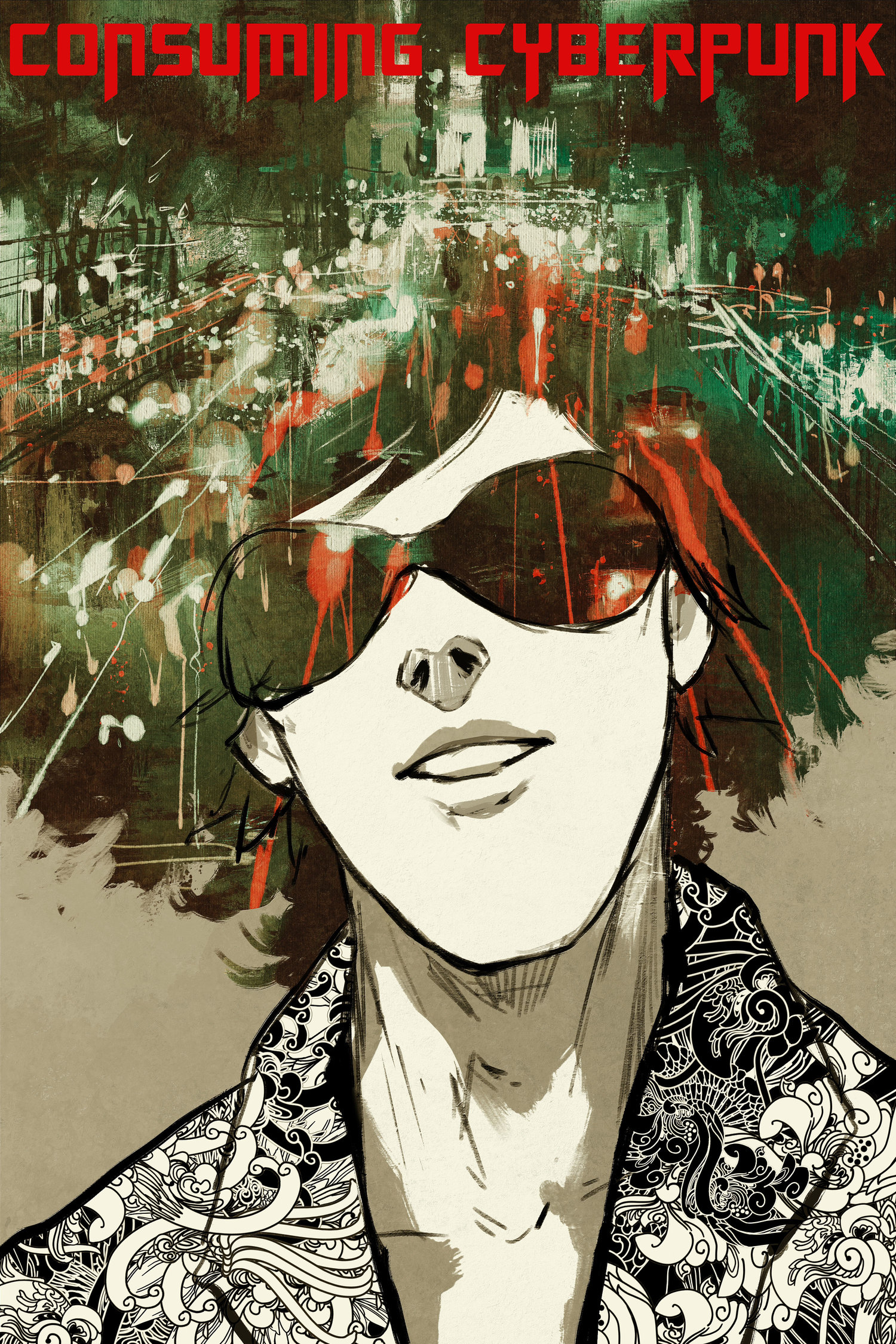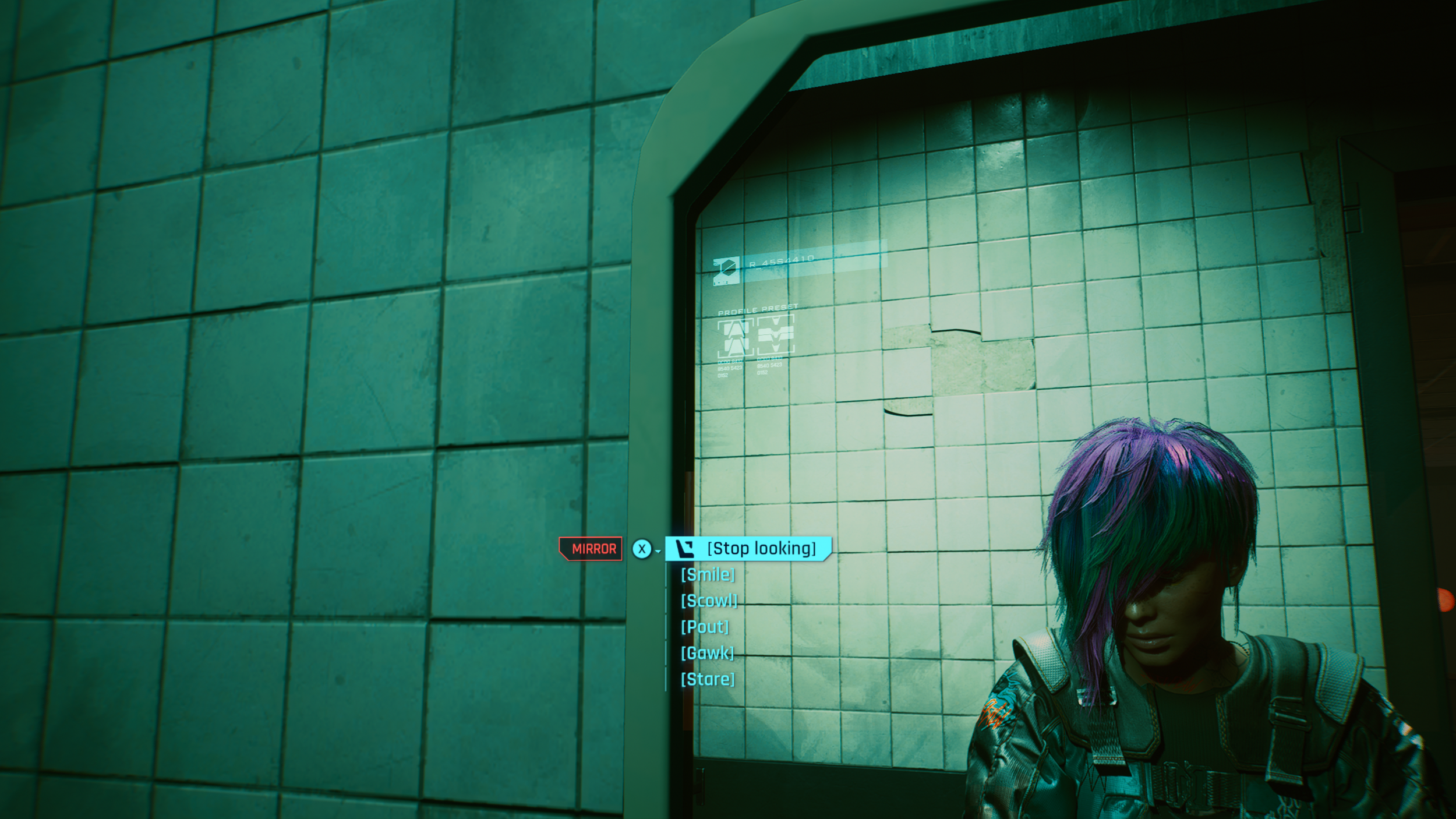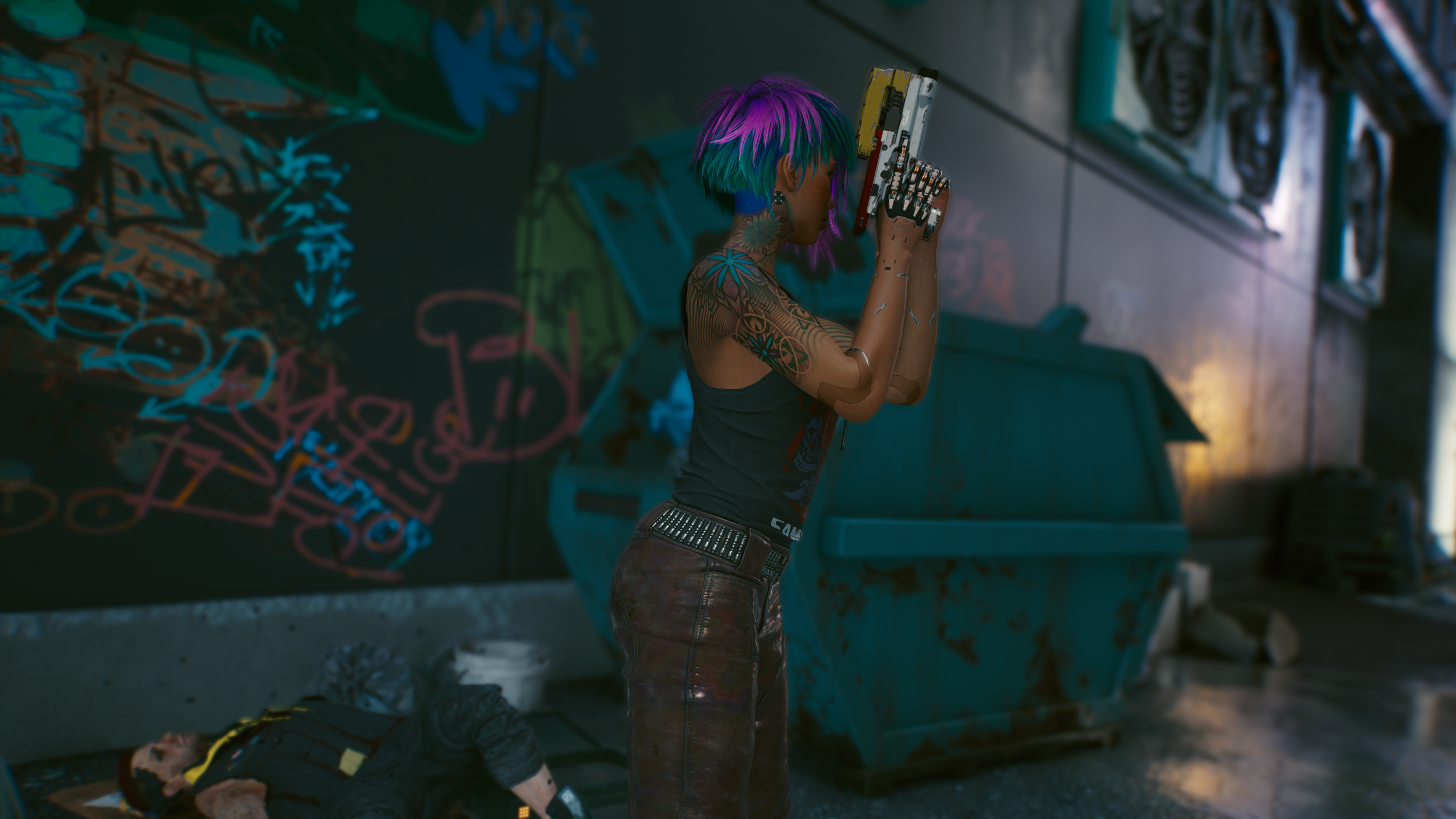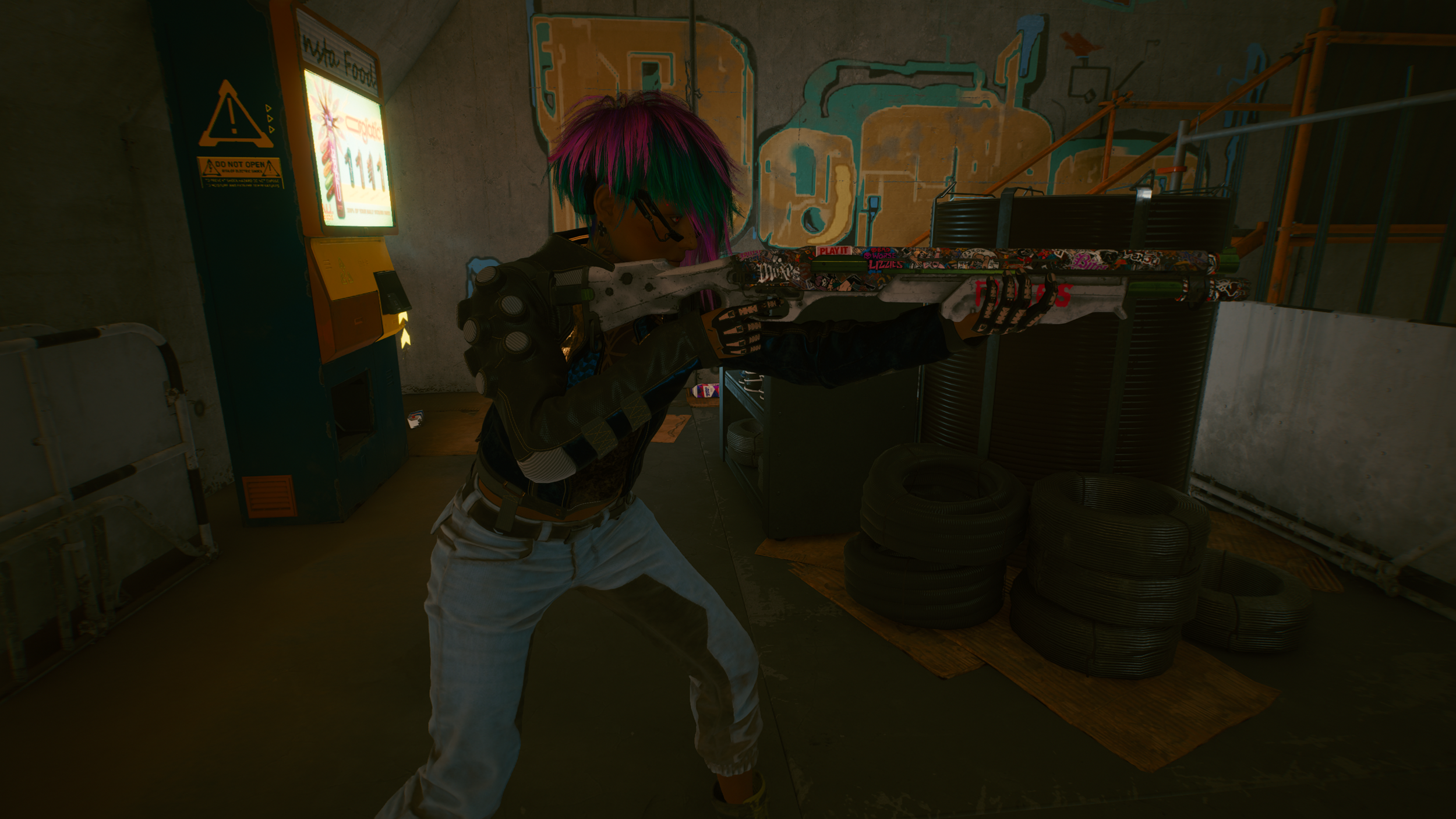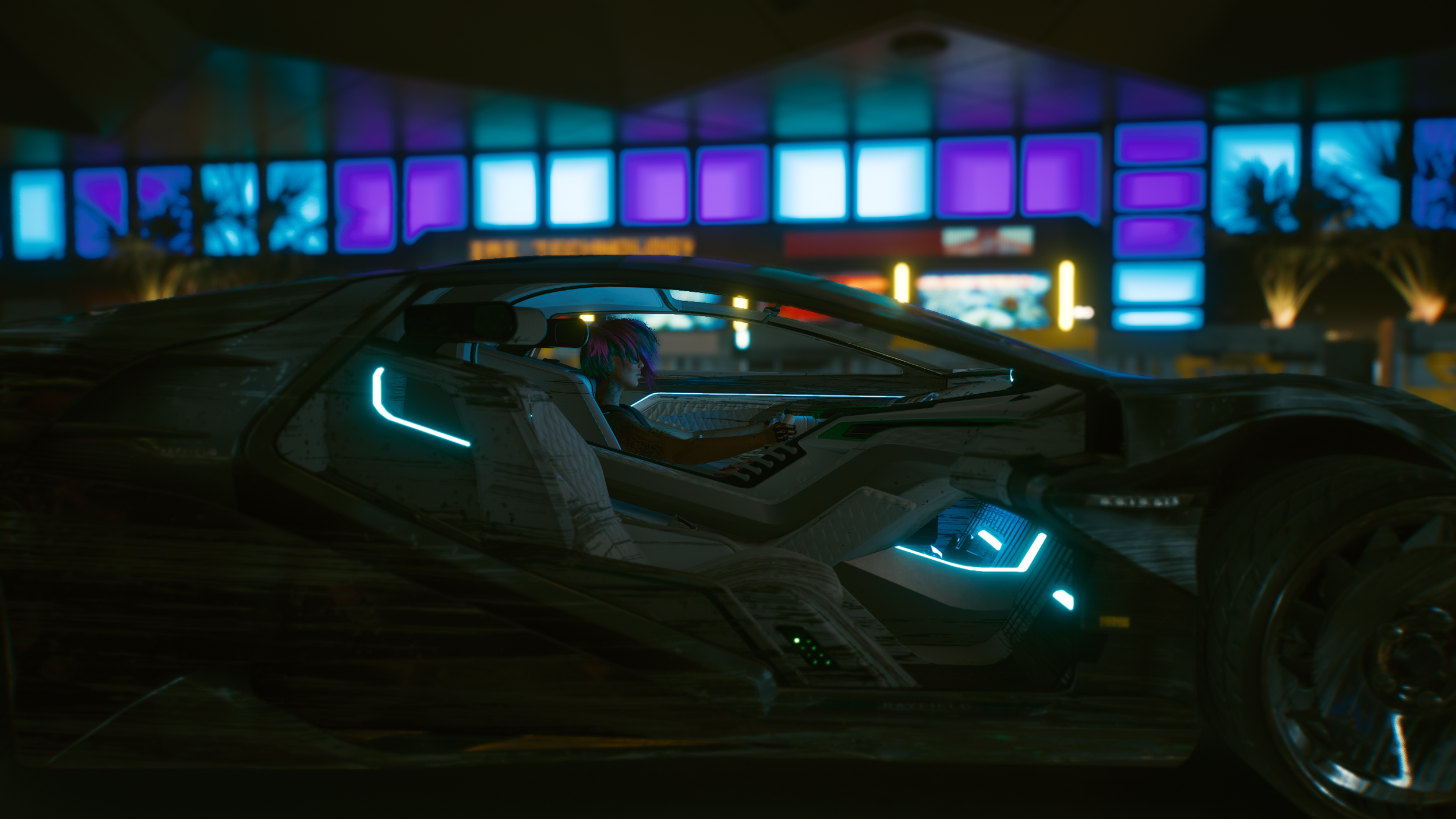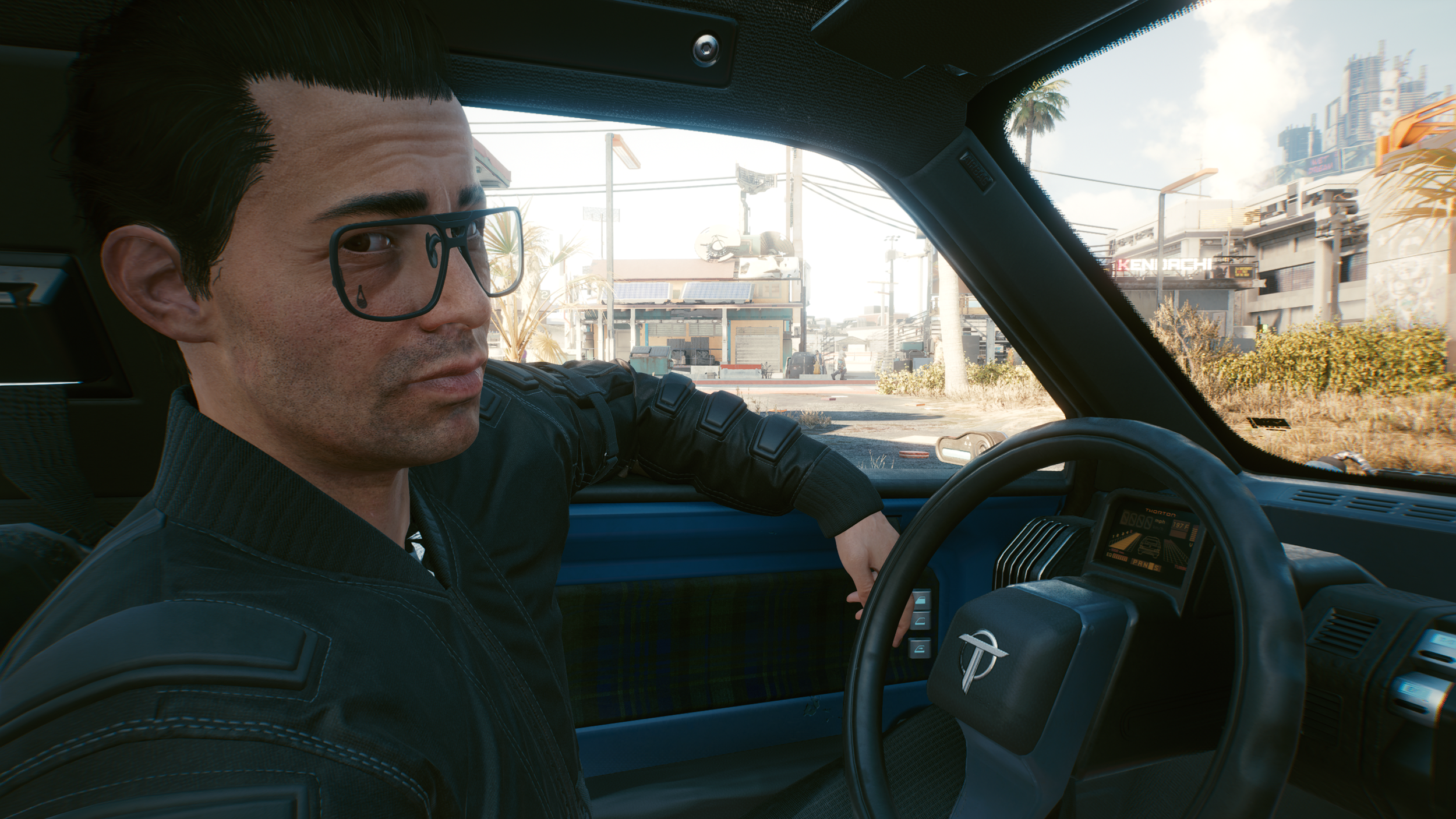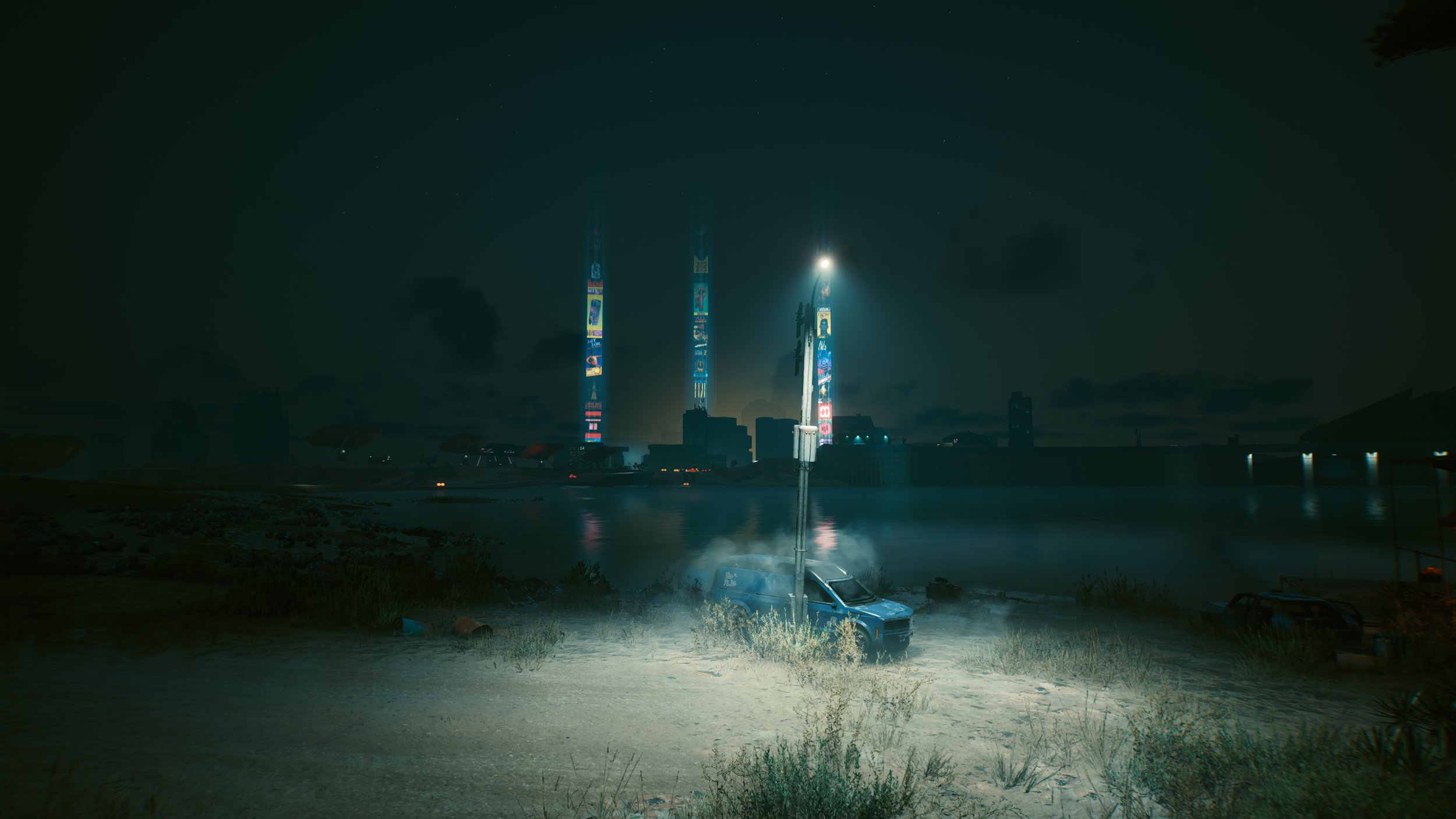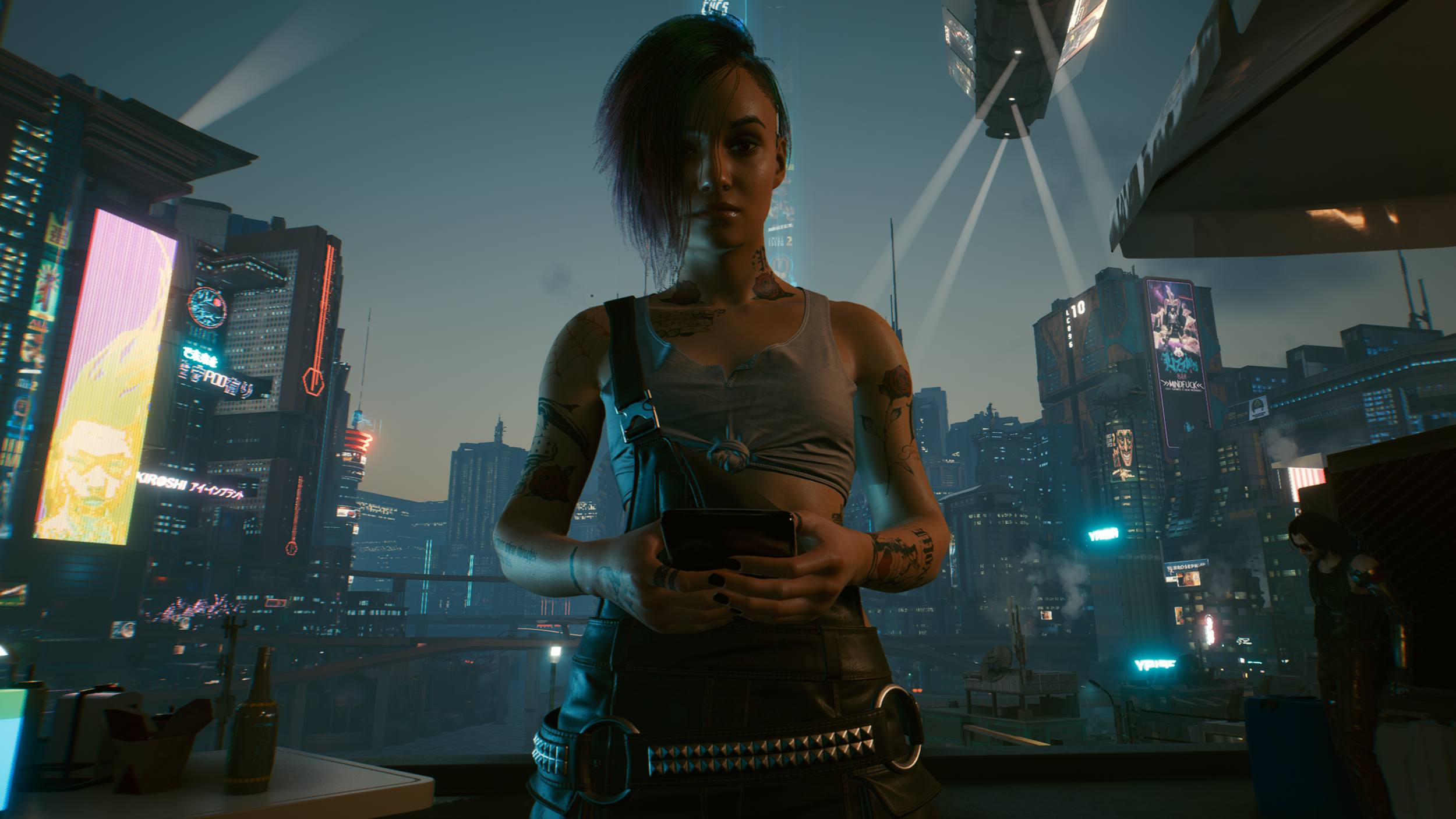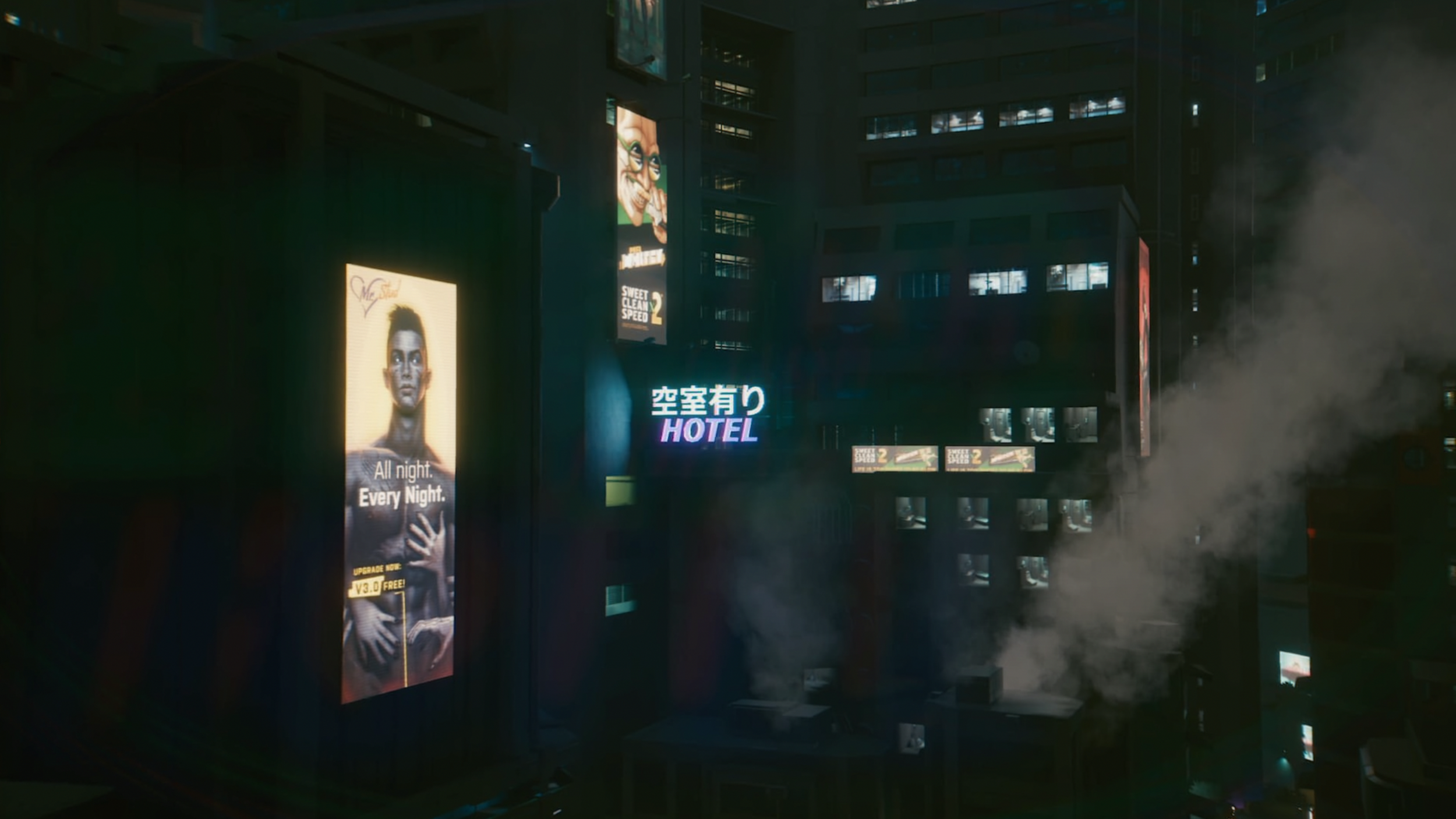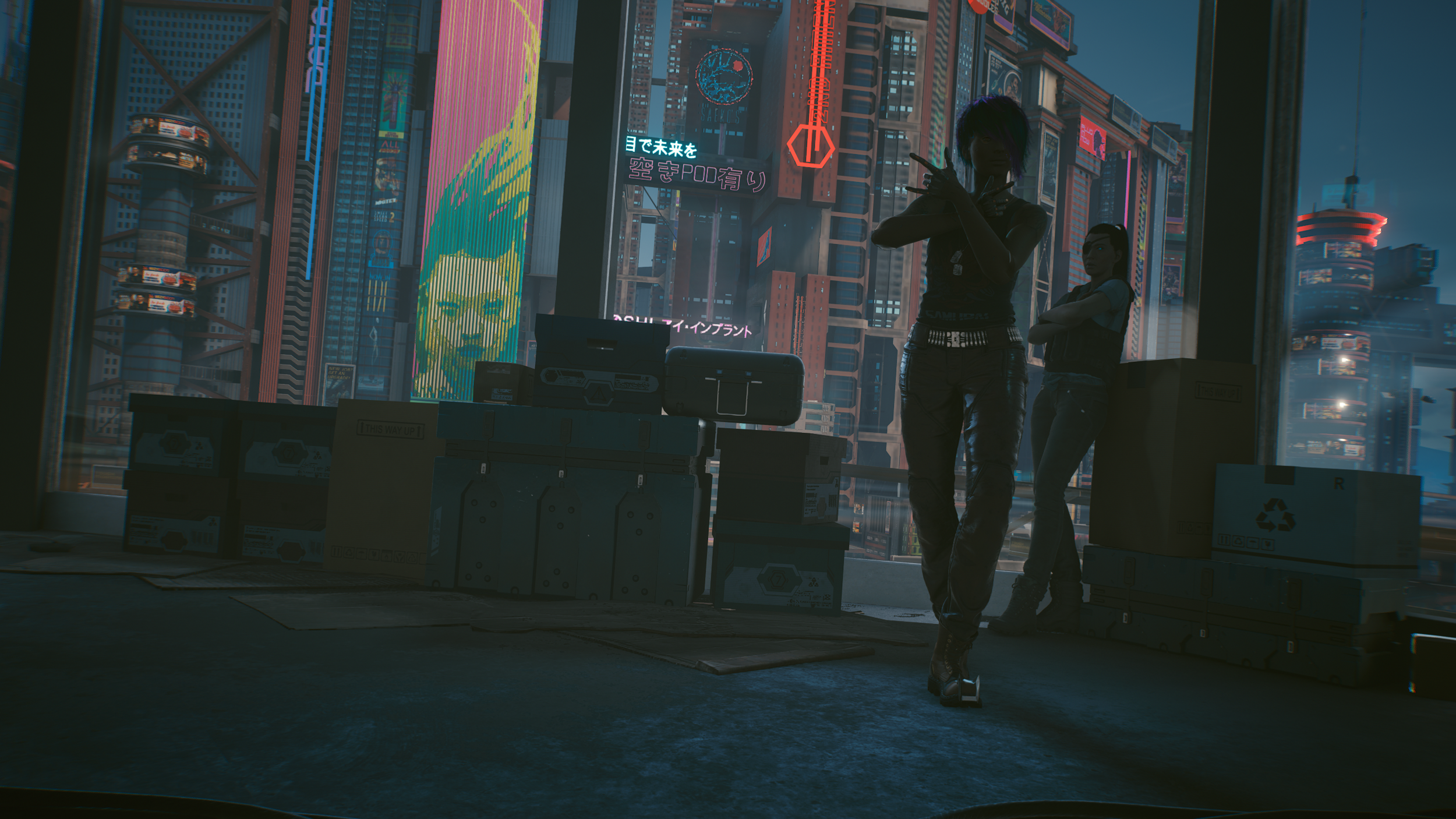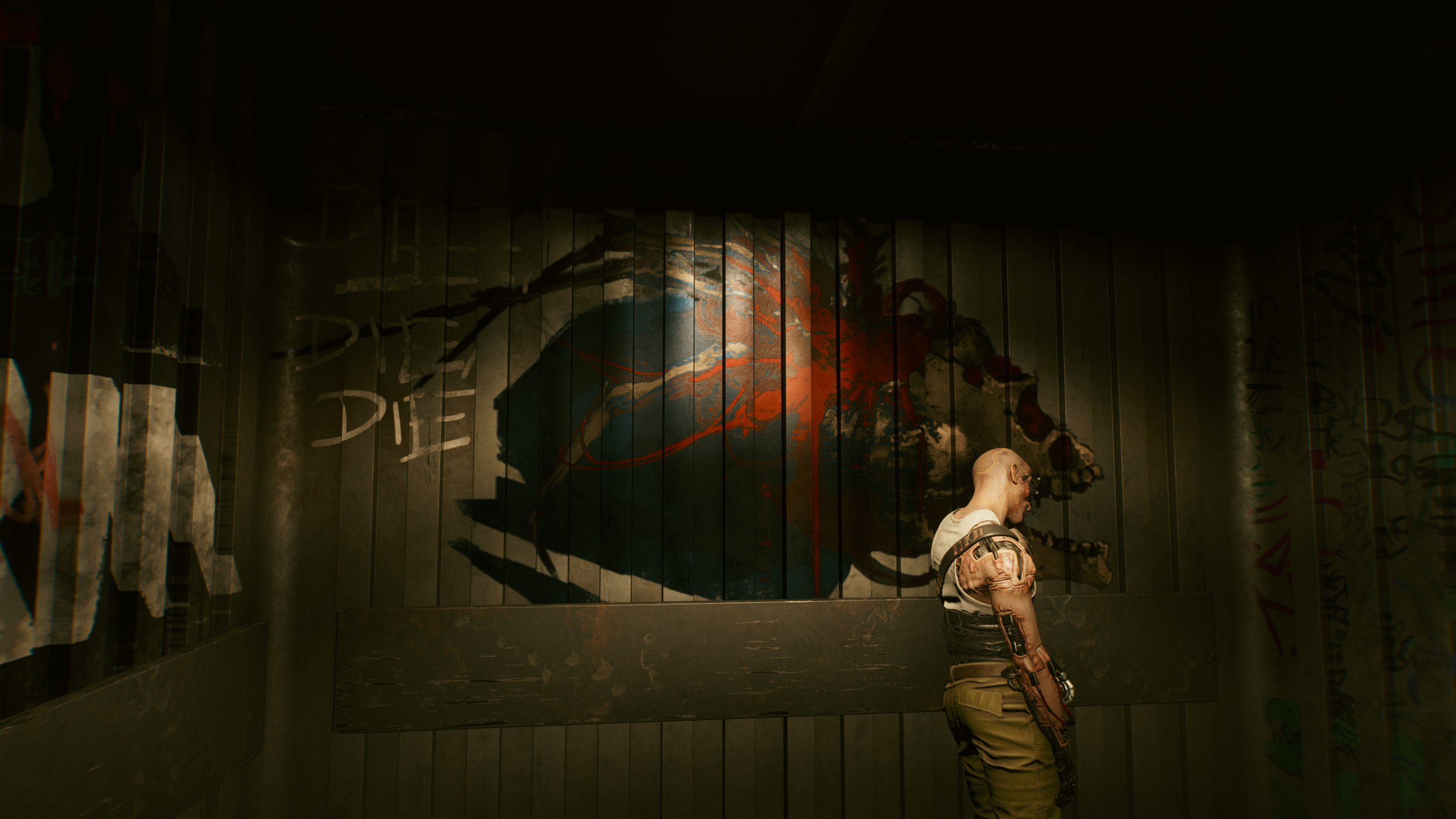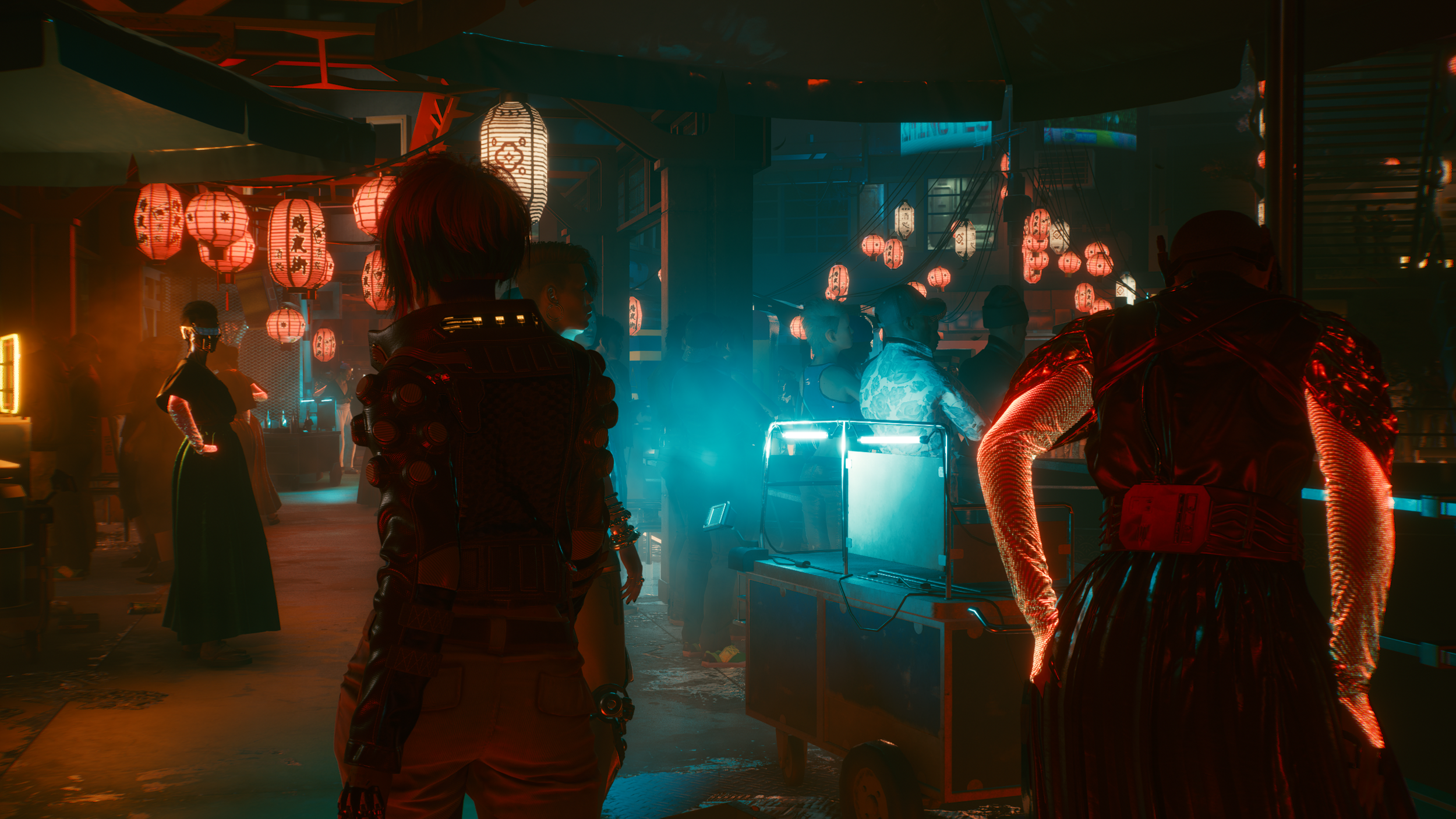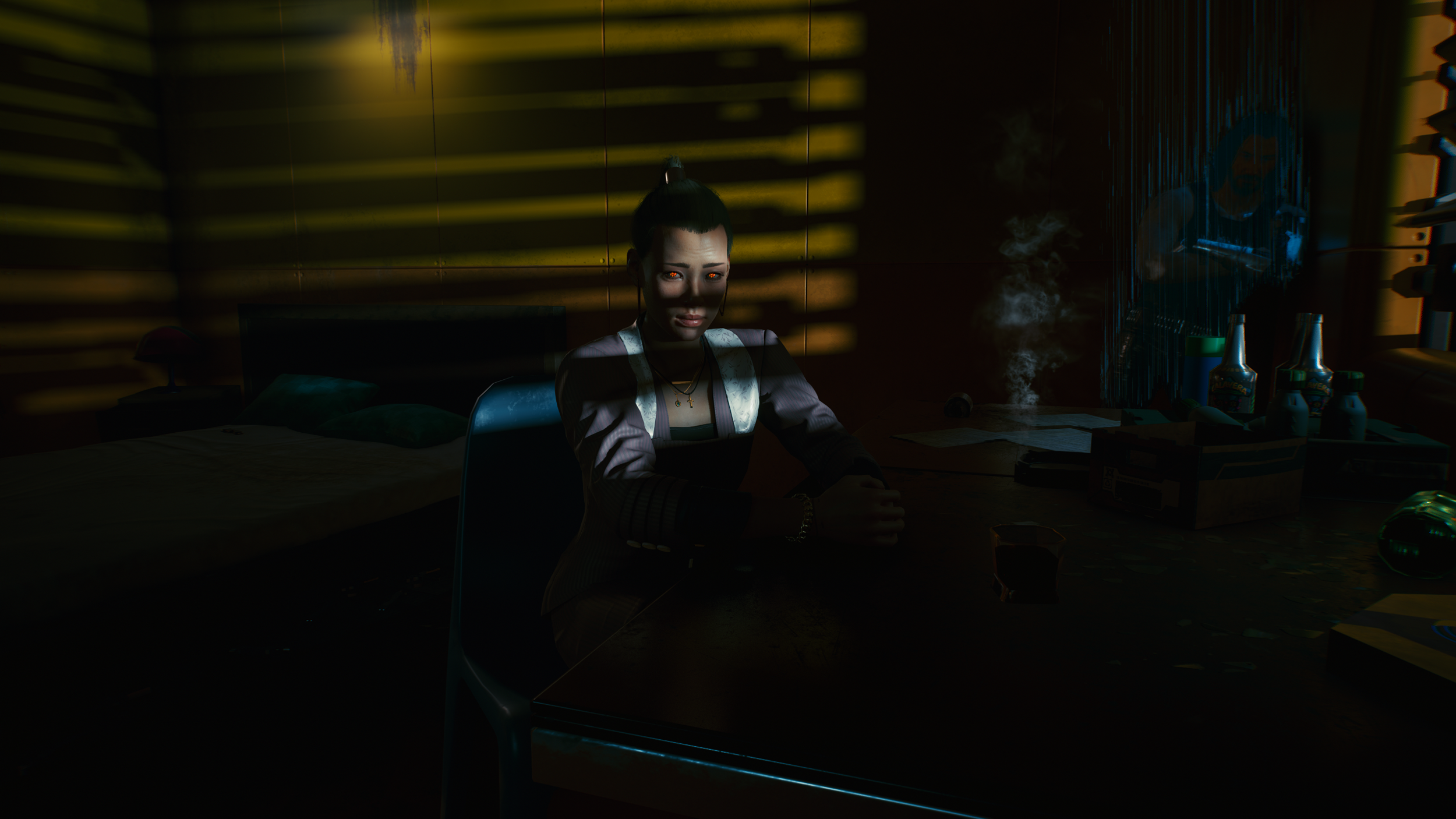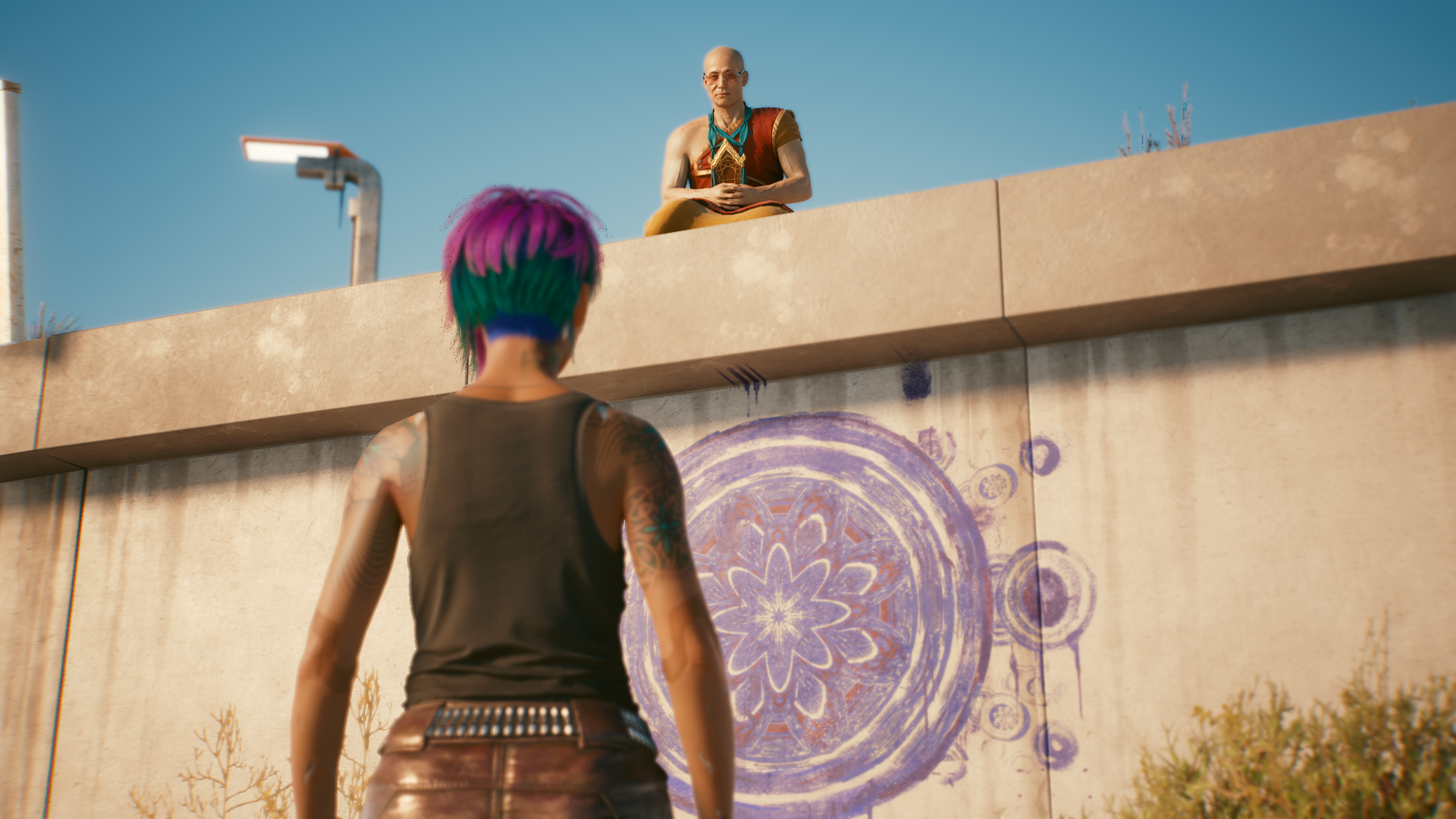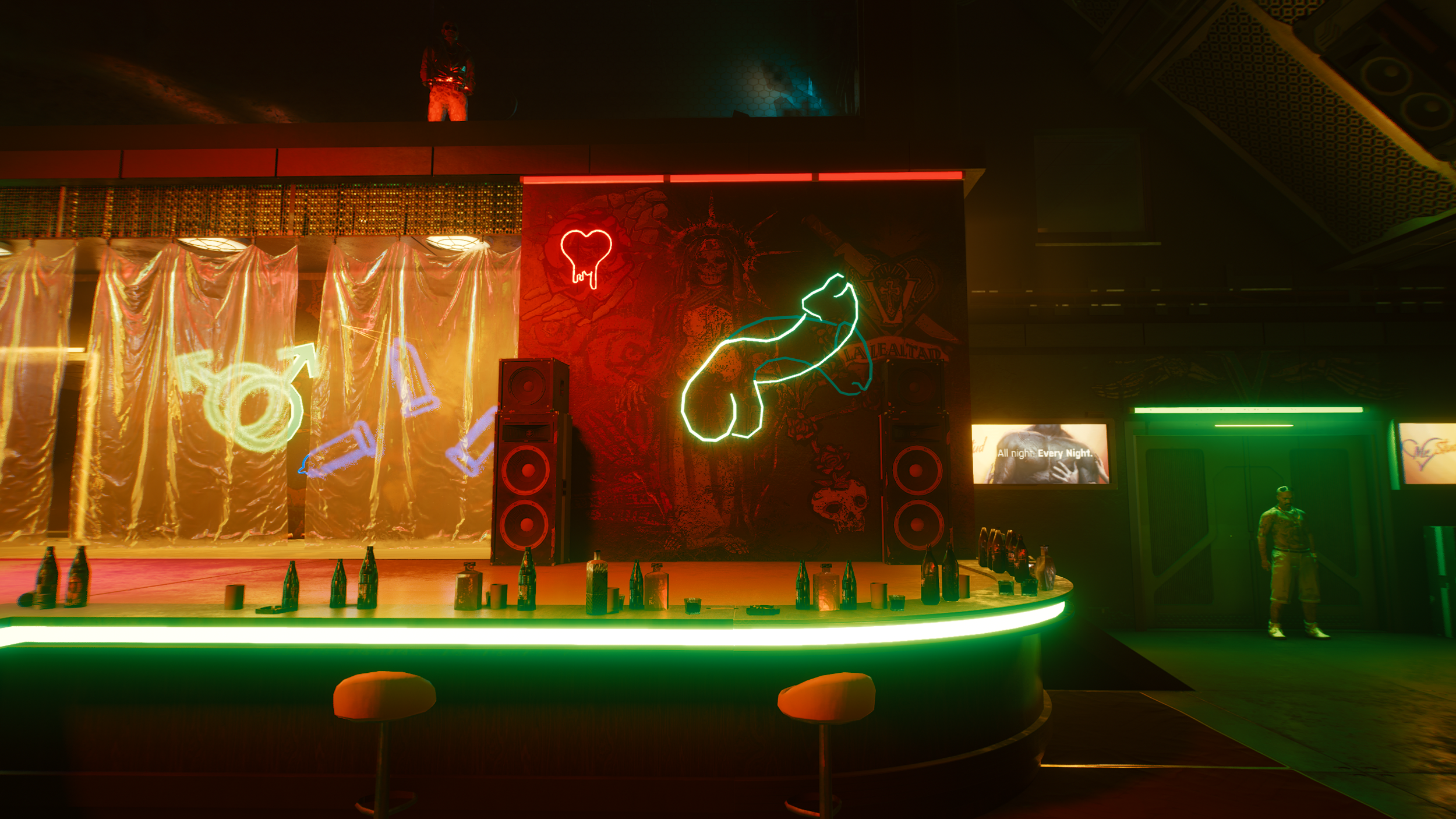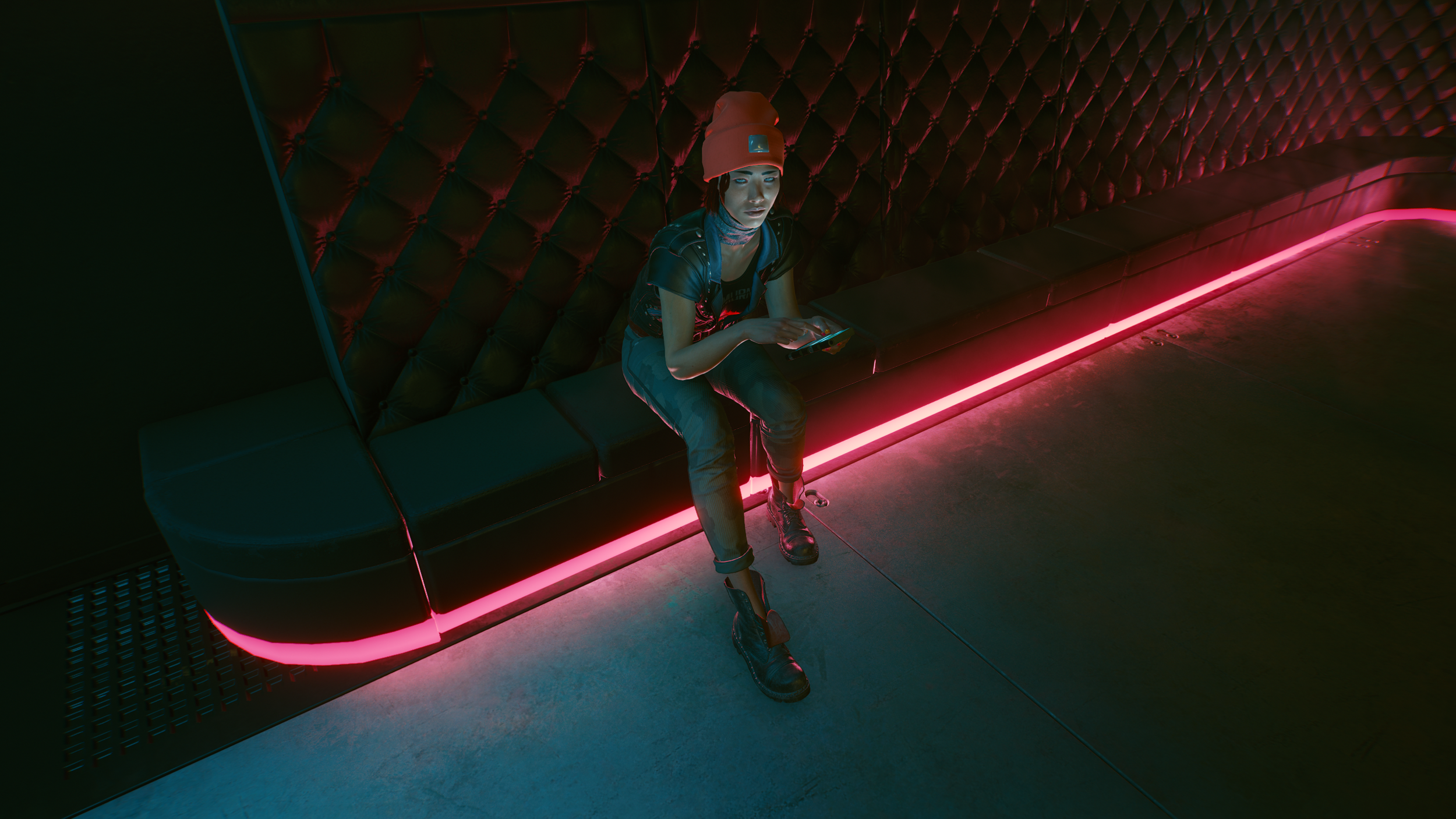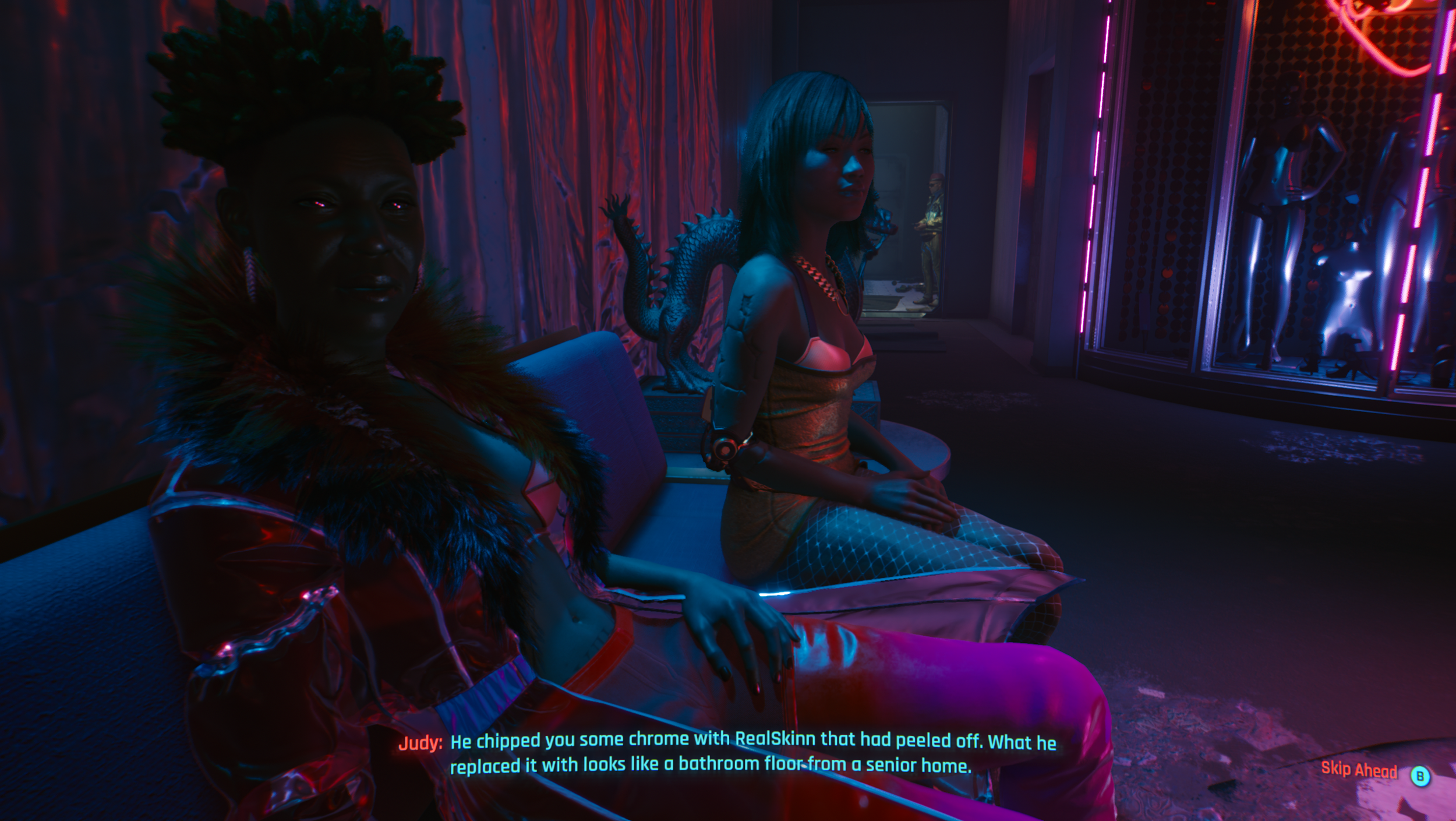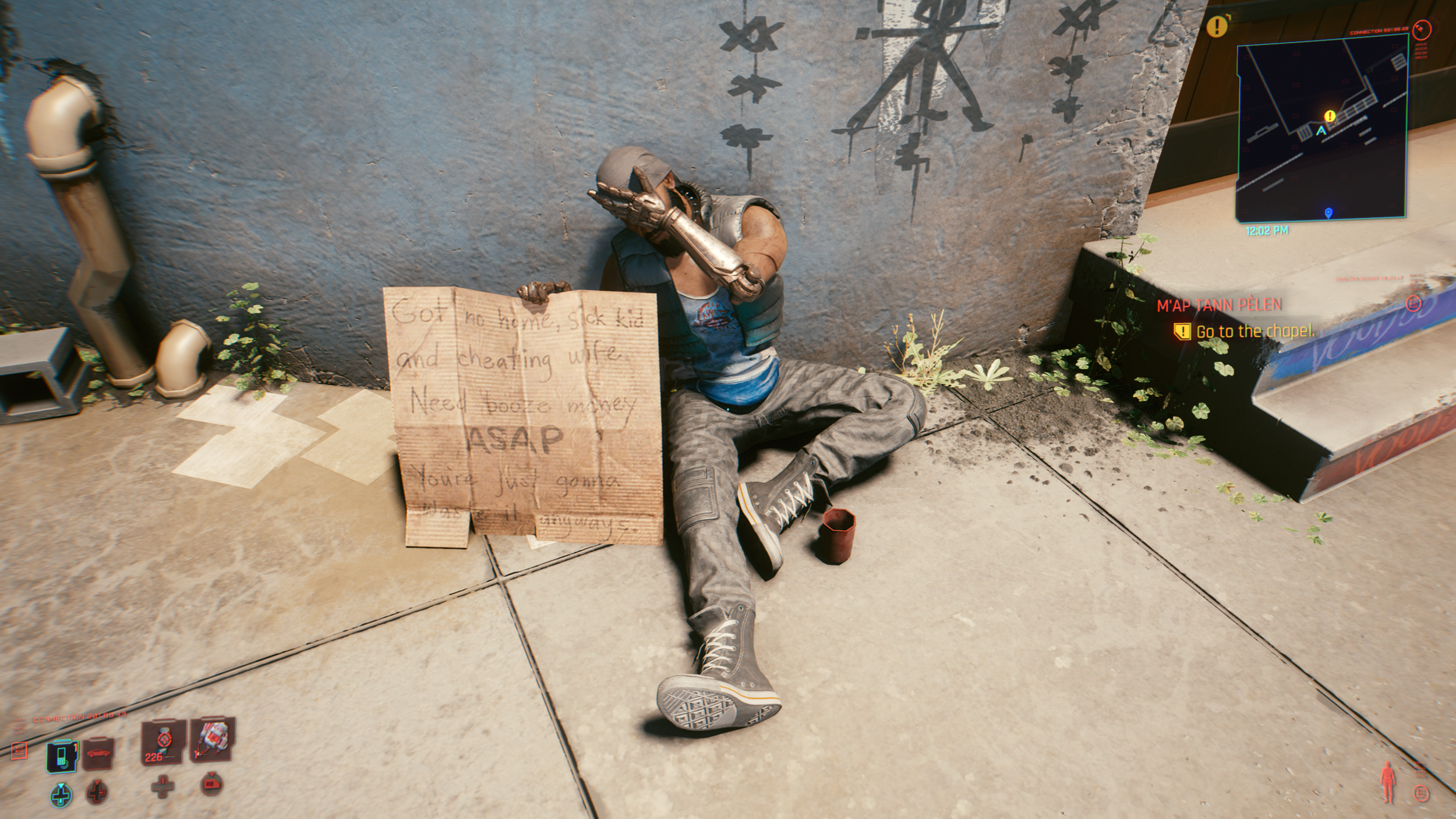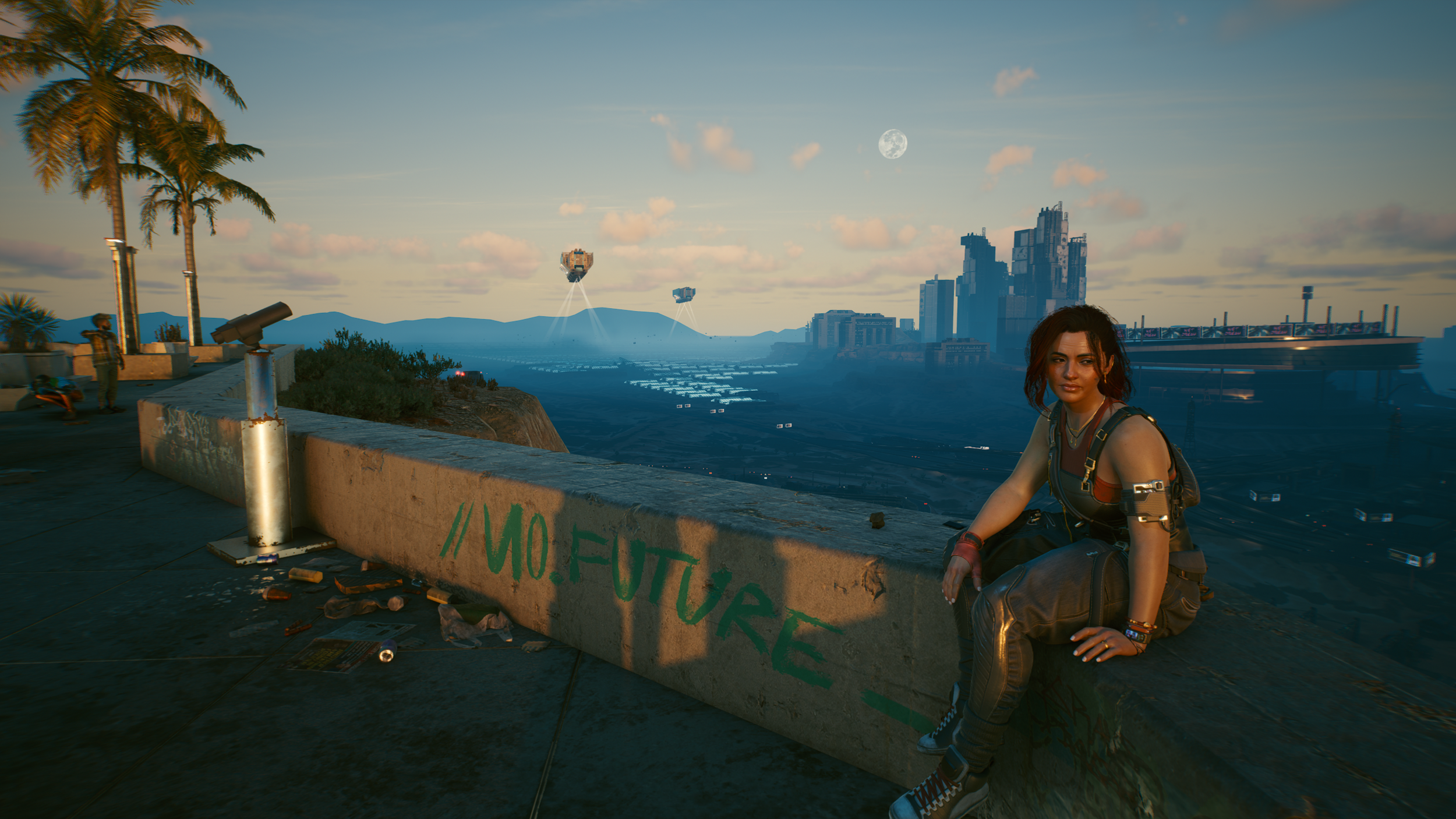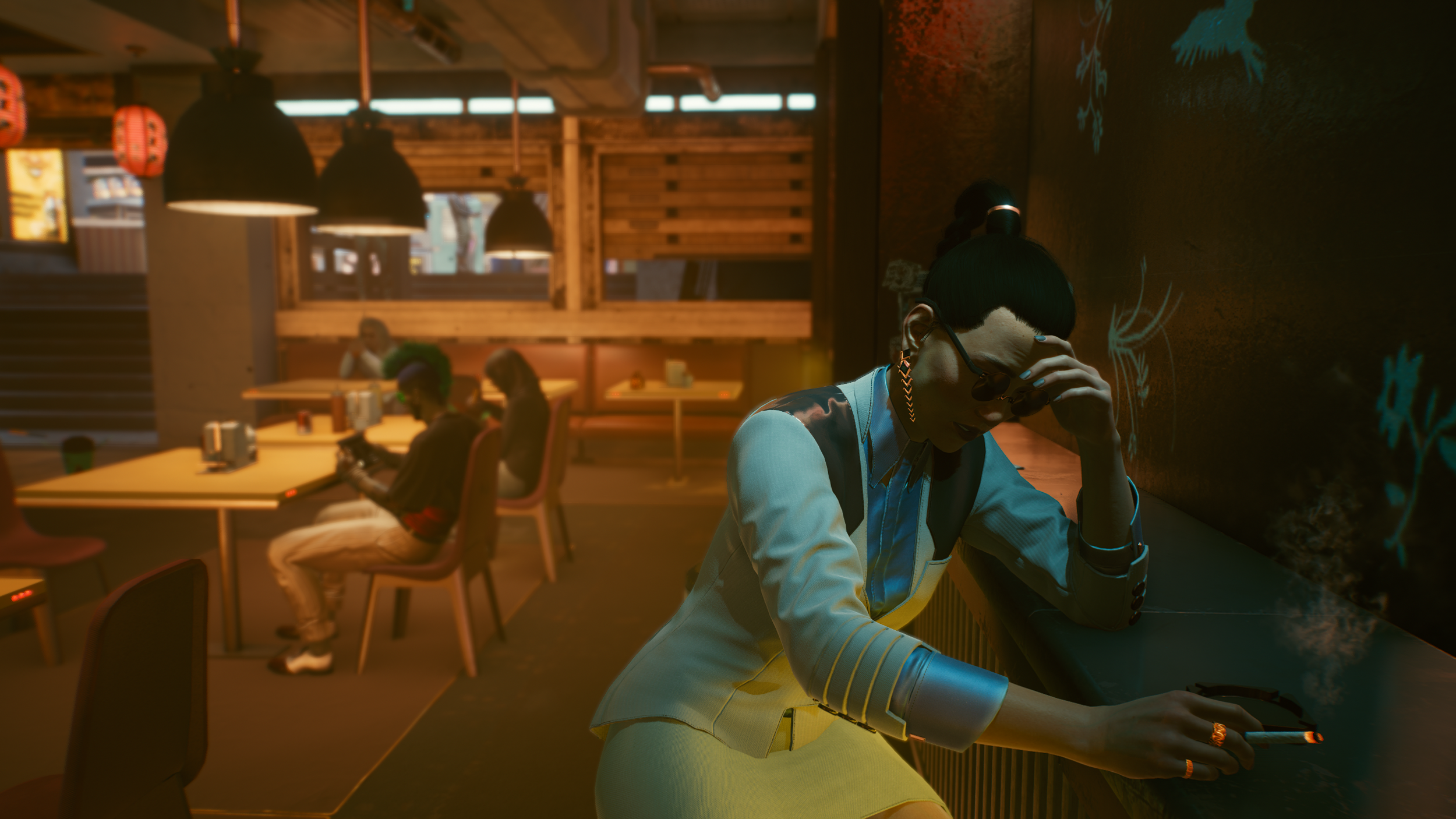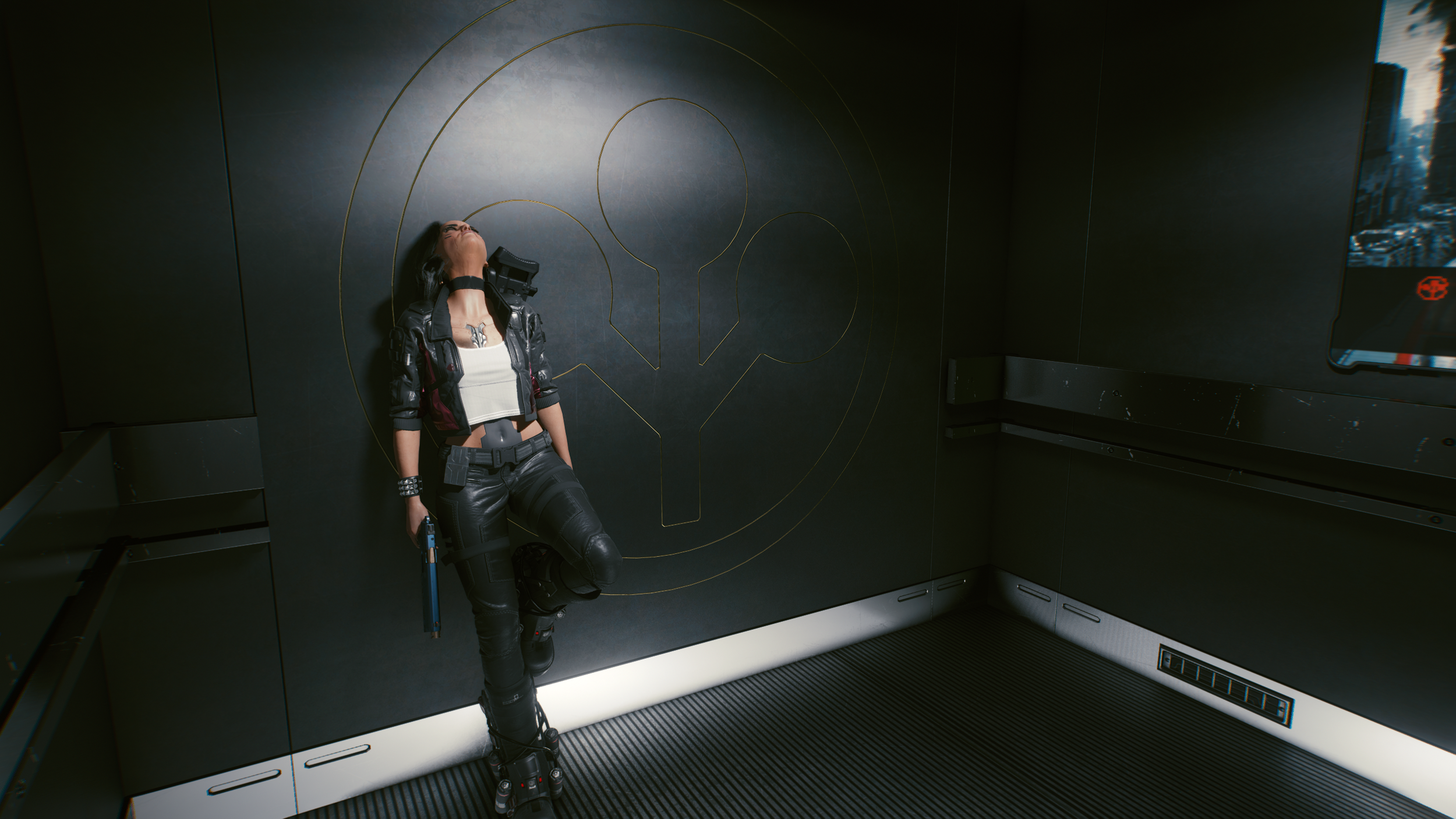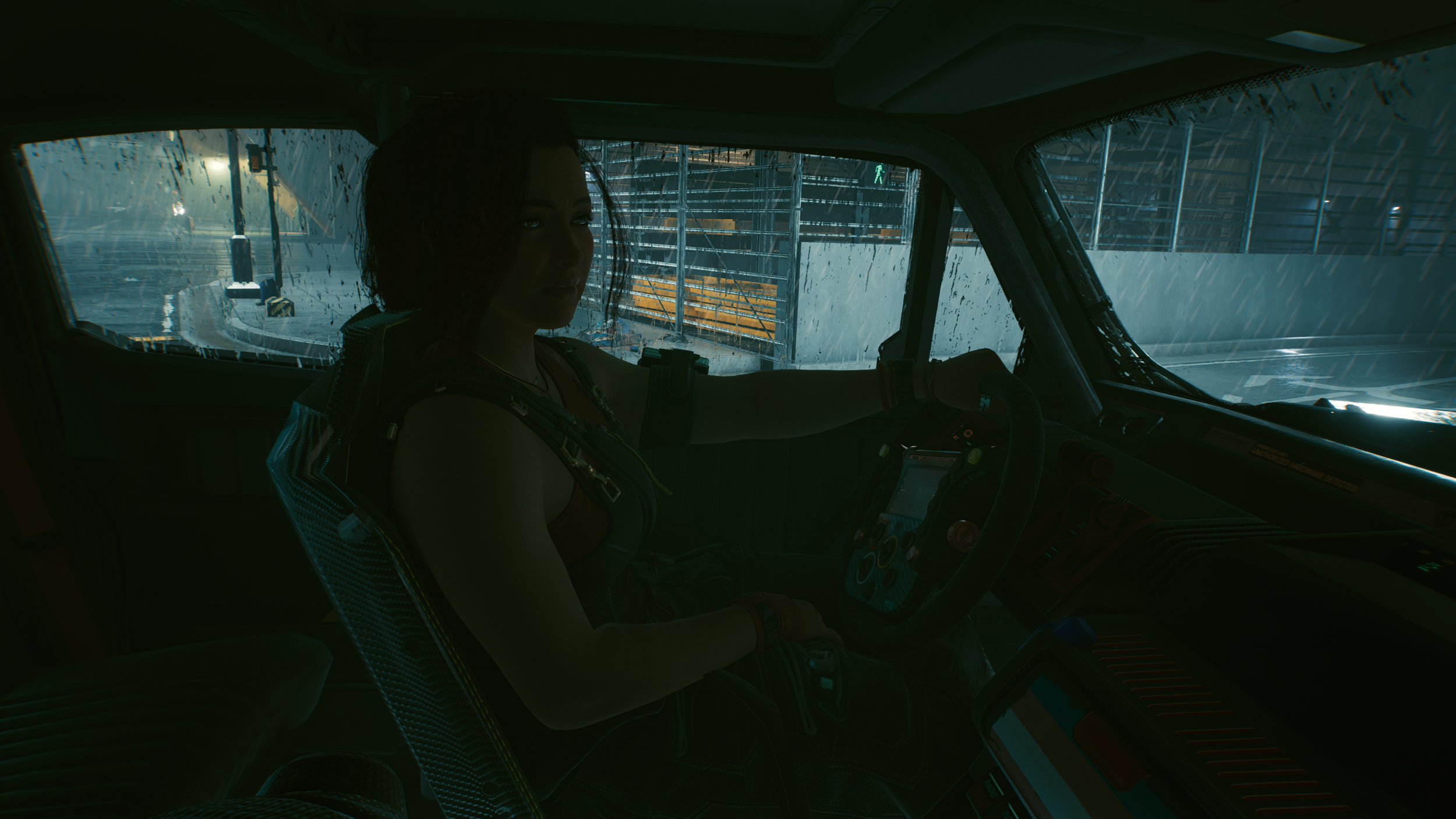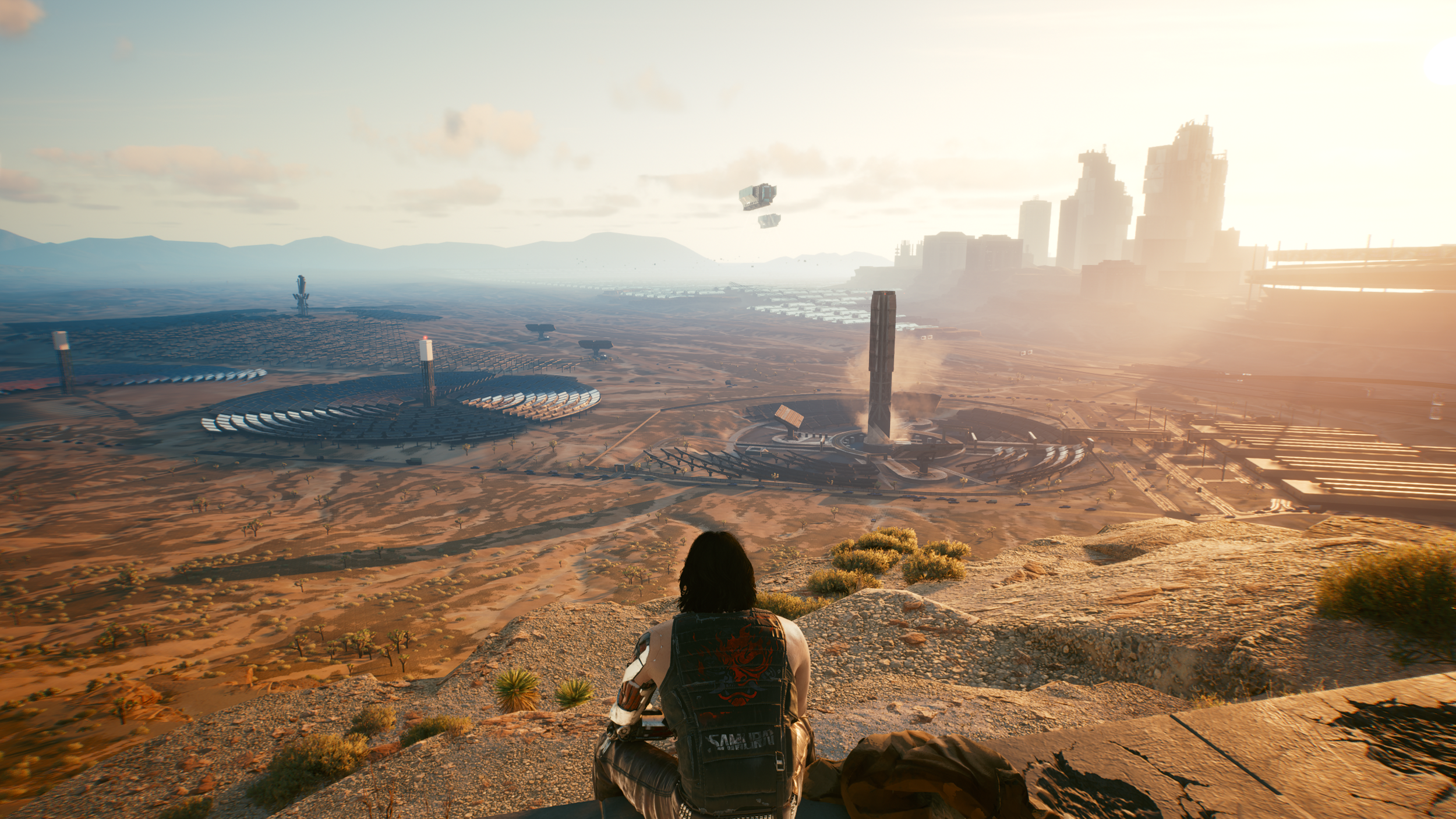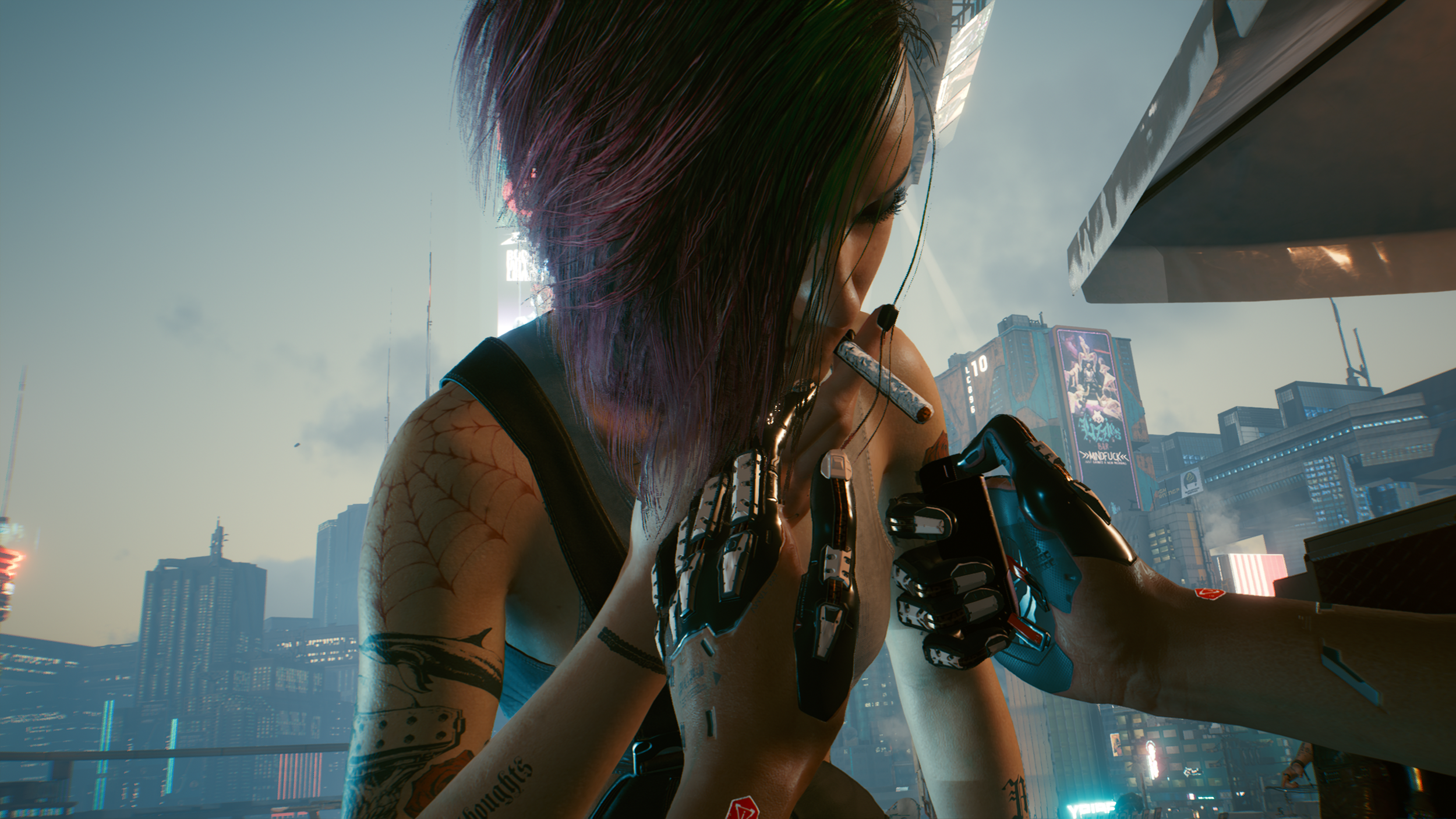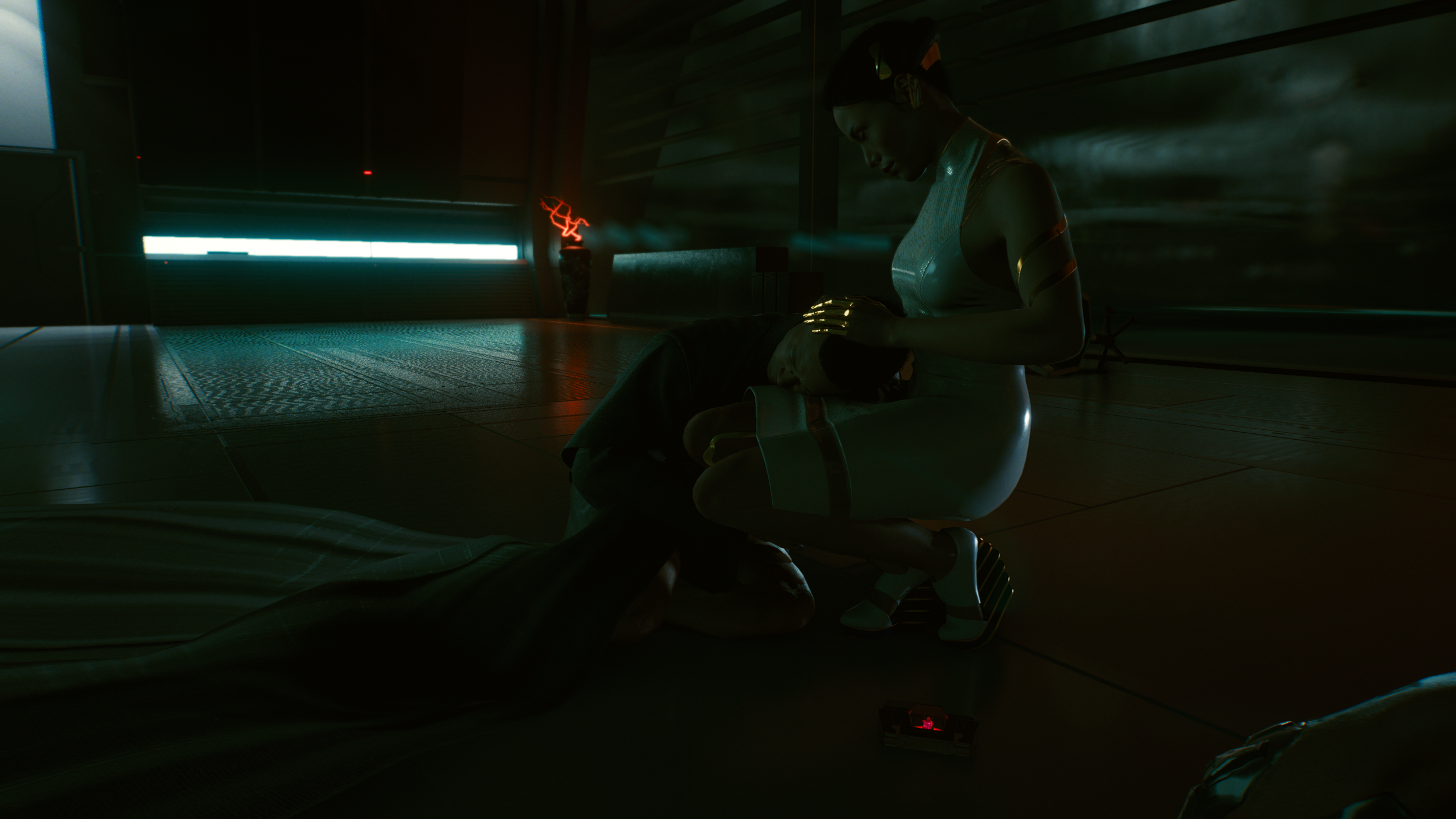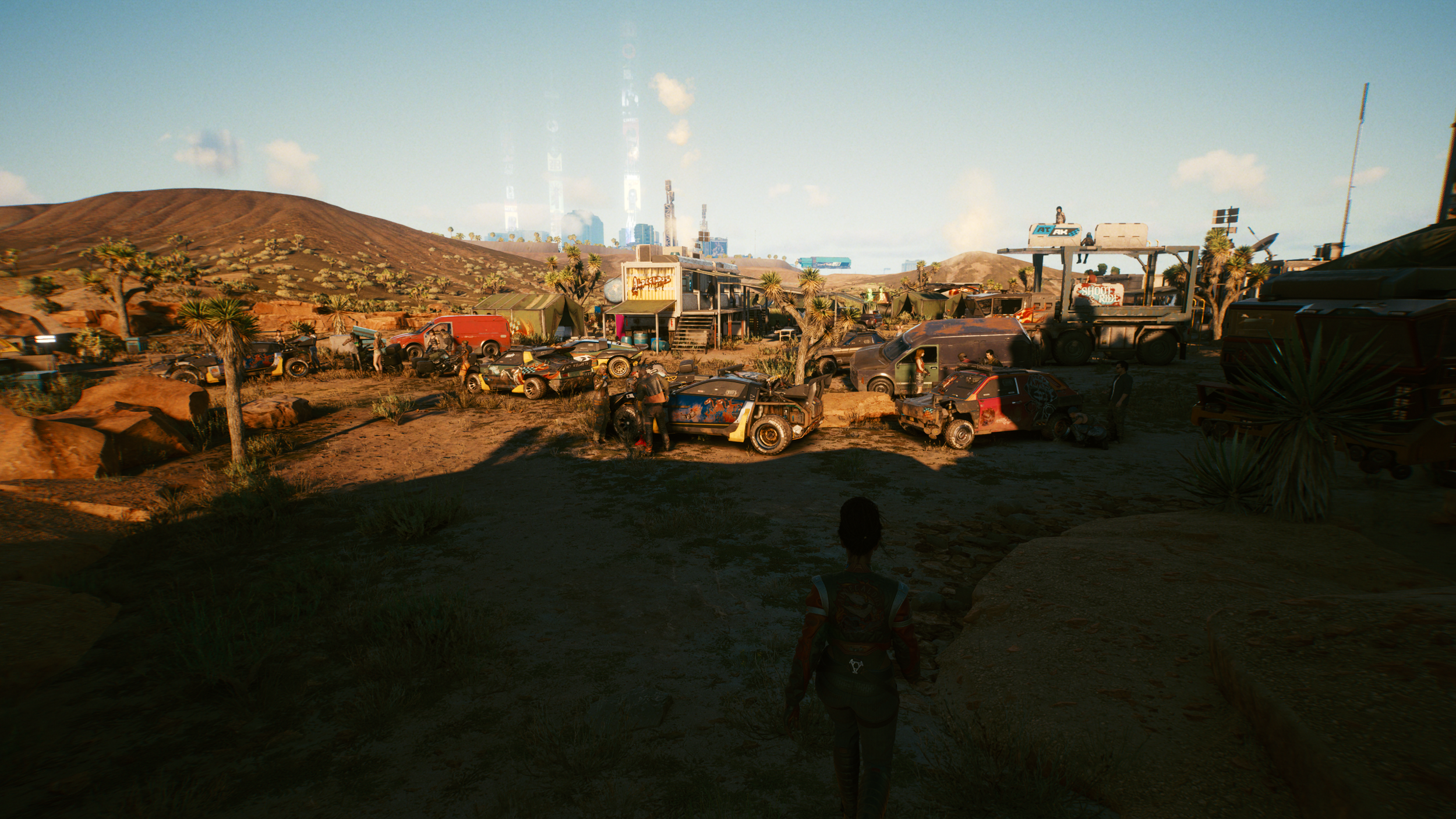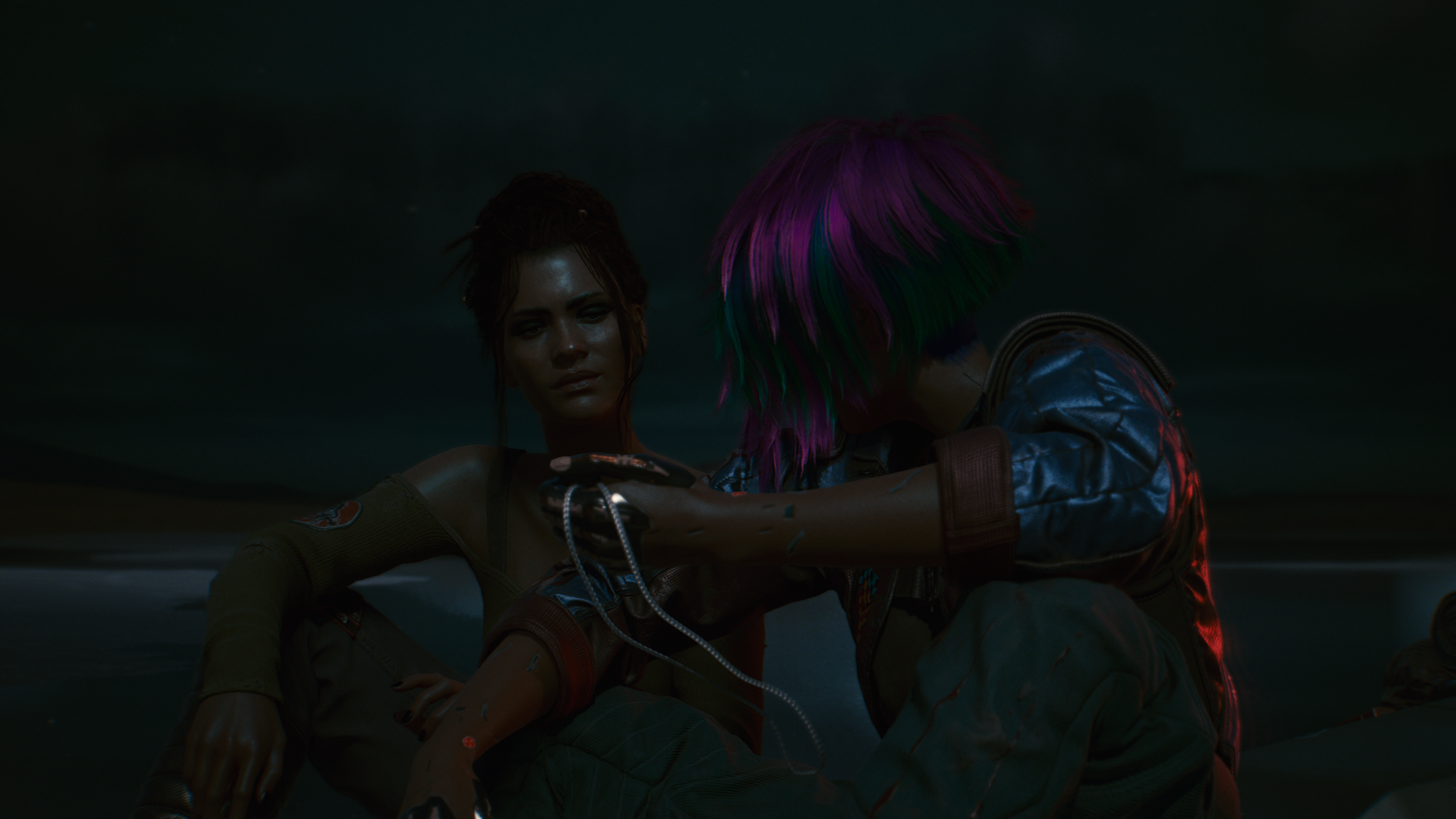Cyberpunk 2077: Is This To Be An Empathy Test?
Cyberpunk 2077 is an adaptation and extrapolation of the popular tabletop pen-and-paper role-playing game Cyberpunk, originally published in 1988. The video game uses an extrapolation of the setting and Interlock system, translated to video game format.
When I finished the game, credits rolled. And rolled. And rolled. More than 15 minutes went by.
Now, days later, as I reflect on more than 70 hours of playtime, Cyberpunk 2077 feels like many people have had their hands in the pie. Its strengths and weaknesses stem from its massive ambition, marketing, and promises.
Different Experiences
I played CP2077 on a Ryzen 7 3700x with 32 gigs of RAM and an RX 2700 GPU. I was able to get around 35 FPS at 1440p without noticeable drops (except when looking in mirrors), and I played on ultra-settings without ray tracing on. I began playing it with the rest of the PC consumers with the day 1 patch.
As a crafted experience, I can say that it is the most impressive looking game I've ever played, and my playthrough seems to be a fortunate one, with maybe a handful of glitches or bugs across the entire 70 hours. None of which were remotely game-breaking. I was never unable to progress in the story. I never had a crash. The most annoying thing I experienced was sometimes crosshairs from a gun would continue to stay onscreen after it was holstered.
I mention this because I think a major component of why I come away with a positive experience is because my computer could deliver the intended experience. And Cyberpunk 2077 is unrivaled in its execution of a funneled narrative. Characters and environments have never felt more genuine and cinematic.
The sound design is some of the best I've heard, and it's perfect in every aspect of the game. From the sound of a throaty exhaust to the scraping of metal-tipped hands against hardwood, the sound is superb and adds to the immersion.
The World
With a setting as old as Cyberpunk, there will be consumers who are familiar with the setting and have a grasp on the worldbuilding. For the uninitiated, however—of which, I think most customers will be—the aesthetic and gameplay elements the marketing team used in advertisements will be the primary hook. The game doesn’t go out of its way to communicate that it is anything more than that, either.
What was most compelling about Night City was the meticulous detail and care devs clearly put into every nook and cranny of the city. Distinct and disparate, no part of it feels reused or like its filler. It is the most gorgeous and well-realized environment I've encountered in a video game.
Yet the gangs, fixers, and side jobs located within it feel one dimensional when viewed from a macro, worldbuilding perspective.
Typical fixer missions are varied enough and have different small bits of story, but usually just elucidating that specific mission and its characters. You’ll find little bits of lore some of the time, which augment the siloed stories, but often don’t give a wider context to help situate the faction you’re interacting with.
The gangs seem to have a central theme, but I never learned why they were actually there from a worldbuilding perspective, beyond the fact that the game wants you to be looting and shooting.
Culturally, the gang elements are too often a pastiche and don’t feel real. They have scripted lines that are often dehumanizing and feel unrealistic. Some of them don't even make any sense. They'll find a dead body and start yelling for you to come out, "cunt", or some other misogynistic pejorative. How do they know it's a woman? Making them all say and act that way feels so cheap, encouraging you to take them out because they're demonstrably “bad” people. And it doesn’t matter what kind of mission it is. Context doesn’t matter.
With the bits of lore you’ll find all over the place (often repeated), it feels like a missed opportunity to not humanize and characterize the gang identities as a whole; even if you are spending most of your time mowing them down, at least you’d come to understand why the city is the way it is and what its general makeup is better than just knowing which gang claims which area of the city.
The world feels overly concerned with aesthetics that the player never gets context for, so it feels like a caricature used for aesthetic purposes only.
For instance, Arasaka, the megacorporation controlling/running Night City, has a highly traditional, tyrannical, Japanese businessman who has had his life extended with cybernetics. He’s over one hundred years old and controls Arasaka with an iron fist. The inference on my part is that locations in Night City with heavy Asian aesthetics are there because of this megacorp’s influence. But it still feels strange because, in other lore given, the city has been run by other corporations not that long ago and had other cultural influences asserted. So why is Little China, Japantown, and Kabuki a weird pastiche and the only place that seems to assert its cultural influence on the city? When you enter other areas, they don’t look like they’re trying to recreate foreign cultures. Is it because of the Arasaka influence? Possibly, but I never found any lore that explained it. Visually, this aesthetic dominated my playthrough.
The result is a siloed microworld that feels like it might be there simply to justify some of the predominantly Asian gangs, who seem to be basically just cyberized yakuza and come up fairly often in fixer missions. The main story also springboards off some of these locations, so the game really wants this look to make an impression on the player.
When you explore in-depth, all of the interactable, consumable portions of the city have a faux quality because you can only look at them. Sometimes you can buy food from a couple of vendors and clothes, but everything exists solely to be interacted with in a hyper-specific way, rather than extrapolated from a perspective divorced from what would be merely aesthetically interesting and actually realistic enough to let V feel like a character that is a part of this world.
You can sleep with and date a few different people, depending on your gender presentation, but the relationship's extent beyond that varies. There are some texts between characters, but you don't get to, say, go home and do anything with them. Their interactions with you in person are the same as though you had phoned them.
You can talk to people on the sidewalk, but they have a regurgitated one-liner and then go back to what they're doing. You can't go up to a gang member and talk to them because once they see you, they’ll attack you if you get too close.
The only things that feel genuinely next level are the prescriptive story elements. And that's okay! It just doesn't jive with the level of detail or how much you think you'll be able to interact with things when you first see them. Marketing makes it seem like the world at large may be something you can interact with, but those all end up being the curated narratives.
Because the worldbuilding framework is from a first-wave cyberpunk perspective, unfortunately, pitfalls like techno-orientalism are prevalent.
The themes around the commodification of those things that make us human, from our body, faith, and art, are all interesting themes present in the genre—but here they are skewed toward fetishizing minorities and subcultures, just as first-wave cyberpunk texts tended to do.
V is ostensibly a cyberpunk and it follows that they would be a part of the same subgroup as the minorities who are underrepresented and lacking nuance in the CP2077 world, but V is actually traversing the story with their only integration into a subculture being that they’re a mercenary. With few exceptions, they all seem to not really share punk values, either. Some take jobs from corps (you certainly can if you want), some don’t like the corps but aren’t particularly anti-establishment or pro direct action. Most just seem to hang out at a bar. You don’t hear about what they do on the news or in the world. You don’t get jobs from fixers that are ideologically aligned with being punk. And you don’t integrate with any other subcultures when out of the main narratives.
The exploitation of people and the world's general themes and sensibilities still feel firmly rooted in the late 80s, early 90s. It is not aware enough to fully realize an actual subculture or even the dynamics of criminal elements in the city, so it frames the story from a mainstream perspective for mass appeal.
The problem is that, with so many people consuming the game, this becomes the default that those consumers will adopt. It has a responsibility precisely because it is so popular and will become a part of the general intellect. Rather than be progressive with its themes and push mainstream depiction of cyberpunk to something in line with what can be found in literature today, it is regressive.
Ultimately, the worldbuilding is the most disappointing aspect of Cyberpunk 2077. The main narratives, however, are a different story.
Story
Arguably, the most important thing for a role-playing game experience is the story. In 2077, you play V, a mercenary on the edges of society trying to make it big in Night City. In classic cyberpunk genre fashion, a chance at a big score drops into your relatively inexperienced hands, and you seize it. A heist is planned; it doesn't go as planned—and Johnny Silverhand, a long-dead anarchist and misogynistic jerk—basically a proto-typical embodiment of 70’s rock ethos—ends up in your head. He has his own agenda, and V can either go along, get along, or make their own decisions about what to do next. For the most part.
The story beats are as meticulously crafted as corners of Night City. The character animations are the most advanced I’ve ever seen—: they’ll smoke a cigarette for a portion of the conversation, stub it out, then get up and pace nervously while delivering their lines. Their emotions will be written on their face and flow naturally. They'll touch items or other people in the scene. They look and act like real people and sound like it too.
There’s a 4-part storyline with a trans character in which you just won’t ever learn their story unless you talk with them and earn their trust. You can go through the whole narrative and help them out (or not), and never learn much about them. But if you spend the time and ask questions, you'll always get something from these storylines, even if they initially seem to be just another gig on the map.
Because the game's worldbuilding, including in-game ads, is blind to its own defaultism, stories like this are absolutely vital. I wish there were more of them and I hope the free DLC forthcoming are things like this.
2077 is populated with genuine, human moments. They communicate why you should care about the city and the people you encounter. And most importantly: these moments define V as much as the main storyline.
Whether intentional or purely a byproduct of how each facet of the game was developed, these stories augment the play experience a tremendous amount.
What I remember most is finding out if Johnny can, and will, actually change or if he's just trying to manipulate me, discovering how my decisions alter the way he interacts with me, and going down a rabbit-hole, sex trafficking narrative that initially feels a bit too archetypical, only to have it morph into a multi-part story that rooted V's narrative in an emotional and impactful way.
These are the stories that you can actually, meaningfully change. And because I did them all before the main storyline, they all felt like they meshed well with my V’s overall story.
Of course, you could do the main story right away and then go back and do these side stories. I think the experience would be quite different because of the knowledge and relationship you have with Johnny at the end of the main story experience, though.
The main storyline has multiple endings; I've experienced four of them, and they all deliver fairly well on expectations. These endings do not consider anything that isn’t a main or side job, which is labeled as such in your log. Your relationships with the main characters do change the endings slightly, but they don't change the overall outcomes for V and Johnny. This made the game's main attraction for me the fleshed-out side narratives and a few other mysterious side jobs that crop up without a fixer giving them to you.
These other stories were more enjoyable because I felt like I really mattered and could actually mess them up. The main storyline is only preoccupied with whether or not you did X and, if so, you can see the Y ending. It felt like it had lower stakes.
Conclusion
I do feel like 2077 is a new way to consume an immersive role-playing video game experience. It's unfortunate and unfair to many people that multiple promises the game makes cannot be fulfilled unless they can experience it on a particular platform (with a fairly sizeable amount of money in the investment). A decent computer to play it on is the best way, and it’s expensive if you want to max out absolutely everything. Next-generation consoles aren't even optimized for it yet. Last generation consoles are struggling. Crashes, bugs, poor textures, and framerates.
What is Cyberpunk 2077 when it can’t replicate the ideal delivery for its desired experience?
So much of what made the experience singular and noteworthy for me comes down to how life-like and human the people I came to care about the most in the game looked and acted. Take that veneer away, and the cracks in the façade appear.
Doing most of the side content before the main jobs gave my V a meta-narrative: they were a ruthless killer that would do pretty much whatever a fixer asked of them. Those were the expectations set by the world outside of the story. But then V morphs into a person confronting that life, questions who they want to be, and what it takes to thrive in Night City when you hit the main narratives. That’s why I had a positive experience. And that’s why I’ll return to the city and do things differently.
Ironically, Cyberpunk 2077's overall game experience relies on technology to build empathy between the player and the main cast. Yet, the world outside of the main narrative denies that same empathy to the denizens and factions it populates Night City with. If the platform you’re playing on can’t effectively utilize the demanding Red Engine developed for Cyberpunk 2077, the most likely outcome is an experience devoid of the only substantive thing it has to offer.
A quick thank-you to the anonymous person who requested a review, along with the money to purchase the game, and to Darren, for helping me with edits and feedback.
